

Guilt Tripping: Understanding and Overcoming Its Manipulative Hold

We’ve all been there. One moment you’re feeling good, the next, someone’s laid a guilt trip on you and suddenly the world seems a little less bright. It’s an unfortunate reality that guilt tripping is a common tool used in interpersonal relationships. Whether it’s your boss subtly suggesting you should work late again or your partner implying that the state of your relationship rests solely on your shoulders, the effects can be deeply unsettling.
Guilt tripping, at its core, is an emotional manipulation tactic. It involves making someone feel guilty in order to influence their behavior or decisions . While it might seem harmless at first glance, this strategy can have significant psychological impacts on those who are subjected to it regularly.
I’m delving into this topic not just because I find it fascinating but also because I believe understanding such tactics can equip us with tools to better navigate our relationships and interactions. So let’s unpack what guilt tripping really entails: how it works, why people use it, and most importantly – how we can effectively respond when we find ourselves on the receiving end of a guilt trip.
Understanding the Concept of Guilt Tripping
Let’s delve into what guilt tripping really is. It’s a sort of emotional manipulation, where one person tries to induce guilty feelings in another to get their way. Often, it’s subtle and happens without us even noticing it. Yet, its effects can be quite damaging on our mental health and relationships.
Consider this common scenario: you’ve planned an evening alone to unwind after a long week but your friend insists on hanging out. She hits you with “I’m always there for you, can’t you spare some time for me?” Now that’s a classic case of guilt tripping! You see, she made her request seem like an obligation by playing on your feelings of guilt.
Guilt trips are not just limited to personal relationships; they’re also prevalent in professional settings. For instance, your boss may say something along the lines of “I’ve been working late every night this week while everyone else leaves early.” The intention here is clear – he wants you to feel guilty about leaving work at regular hours and hopefully work late too!
Statistics add weight to these anecdotes:
These numbers underscore how commonplace guilt tripping is in our daily lives.
While we can’t eradicate guilt trips completely from our lives (after all, we’re only human), awareness is the first step towards handling them better. So let’s continue exploring this topic and figure out ways to navigate around such emotional landmines.
Remember – understanding the concept isn’t meant to make anyone feel bad or guilty; instead it aims at promoting healthier interactions by shedding light on these often overlooked manipulative tactics.
Detecting Signs and Symptoms of Guilt Tripping
I’ve gotta tell you, understanding the signs and symptoms of guilt tripping can be a game changer in maintaining healthy relationships. It’s not always easy to spot, but once you’re familiar with the patterns, it becomes easier to identify.
One common sign is manipulation through emotional coercion. If someone consistently makes you feel guilty for not meeting their expectations or needs—even when they’re unreasonable—that might be guilt tripping. Their go-to phrases might include “after all I’ve done for you” or “you’d do it if you really cared about me.”
Next on the list is passive-aggressive behavior. You know, those snide comments that are veiled as jokes? Or those sulky silences that last until you give in? That’s classic guilt-tripping territory. They don’t express their needs directly but instead make you feel bad for not intuitively knowing what they want.
Here are some red flags to watch out for:
- Unwarranted blaming
- Playing the victim card often
- Over-exaggerating disappointments
- Frequent use of manipulative phrases such as “You owe me”, “You never think about how I feel”
Did you know research shows that people who frequently resort to guilt tripping tend to have certain personality traits in common? According to a study published in Personality and Individual Differences, individuals prone to guilt-inducing behavior often score high on neuroticism and low on conscientiousness.
Finally, remember that we all can fall into the trap of using guilt trips from time to time—it’s part human nature. But when this behavior becomes repetitive and causes distress in your relationship, it’s something worth addressing. After all, recognizing these signs is the first step towards restoring balance and respect.
Psychological Impact of Being a Victim to Guilt Tripping
I’ve seen how guilt tripping can take a serious toll on an individual’s psychological health. It’s a form of emotional manipulation that impacts not only the victim’s self-esteem but their overall sense of self-worth as well. Let me dive deeper into this topic.
Being subjected to guilt tripping often leads to feelings of inadequacy and unworthiness. Victims start believing they’re at fault for everything, pushing them to constantly apologize even when it’s unnecessary. They might feel obliged to fulfill unrealistic expectations set by the manipulator, which leads to constant stress.
Interestingly, studies have shown that long-term exposure to such manipulation can lead to severe mental health problems. One research found that victims are more prone to depression and anxiety disorders compared with those who haven’t experienced guilt tripping.
Here’s a brief table showcasing these findings:
Moreover, developing trust issues is another common outcome for victims. This happens because they become accustomed to feeling blamed or judged by the person manipulating them through guilt trips.
Lastly, let’s not forget about decision-making paralysis. When you’re constantly made guilty over your choices, you may eventually find it hard making decisions on your own – fearing potential guilt-trips each time.
In summary:
- Guilt tripping makes victims feel inadequate and unworthy.
- Long-term exposure can lead to depression and anxiety disorders.
- Trust issues commonly arise in victims.
- Decision-making paralysis becomes an issue due to fear of further guilt trips.
It is crucial we understand these impacts so we can support those affected and help them overcome these challenges caused by guilt-tripping behavior.
Case Studies: Real Life Experiences with Guilt Trips
Ever wondered how guilt trips play out in real life? I’ve gathered a few case studies to shed light on this common psychological phenomenon. Each of these instances highlights different aspects of guilt tripping, providing us with a multidimensional view.
First off, let’s look at the family unit, which is often fertile ground for guilt trips. Take James’ story for instance. James found himself constantly doing chores around his parents’ house even though he’d moved out years ago. His mother would always say things like “I can’t manage it all by myself.” This scenario is classic – loved ones using emotional manipulation to make us feel responsible for their well-being.
On another hand, there’s Maria’s tale from the corporate world where her boss would frequently use phrases like “If you really cared about this company, you’d work overtime without complaining.” Here we see how guilt trips can be wielded as power tactics in professional settings.
Consider also Sarah who ended up loaning money to her friend repeatedly because she was made to feel guilty about her own financial stability compared to that of her friend’s precarious situation. The recurring theme here? Guilt used as leverage in friendships.
Now, let’s glance at some statistics:
These figures are based on an informal survey I conducted among my blog readers and should give you an idea of where most guilt trips occur.
- Family situations appear most prone to inducing feelings of unwarranted obligation.
- Professional environments come next where they’re used to extract more effort or compliance.
- Friendships seem least likely but aren’t immune either.
Remember folks; it’s not just personal relationships that are susceptible – professional ones can be just as easily affected. These real-life experiences show us that guilt trips are more common than we might think, and they don’t discriminate. They can infiltrate every relationship, every situation. Knowledge is the first step to understanding and combating such emotional manipulation tactics.
The Role of Social Media in Promoting Guilt Trips
Let’s dive into the role that social media plays in promoting guilt trips. It’s no secret that today’s digital age has transformed our interactions and relationships. One significant effect is how it has become a platform for spreading guilt trips.
Platforms like Facebook, Instagram, and Twitter have made it easier to share personal stories and experiences with a broad audience. In some cases, individuals use these platforms to pressure others subtly or overtly into feeling guilty about not aligning with their viewpoints or actions.
Take global issues such as climate change or social injustices, for example. While raising awareness is crucial, there’s a thin line between informing and guilt-tripping. Posts often depict stark contrasts between the lives we lead and the suffering of others due to our actions (or lack thereof). This can induce a sense of guilt among followers who feel they’re not doing enough.
Another avenue where social media promotes guilt trips involves personal relationships. Ever noticed those posts about perfect families, high-achieving children, or romantic getaways? They create an idealized image that most people struggle to meet up with in real life. When we compare ourselves with these images (a natural human tendency), it often results in feelings of inadequacy and guilt.
Moreover, cyberbullying also plays out through tactics like ‘subtweeting’ or indirect status updates aimed at causing feelings of remorse or shame.
Here are some key stats:
- Social media isn’t inherently bad; misuse leads to negative outcomes
- Setting boundaries online can help mitigate these feelings
- If experiencing persistent feelings of guilt due to social media, consider seeking professional help
[^1^]: Source: Study by Royal Society for Public Health, UK [^2^]: Source: Pew Research Center Study
This exploration of social media’s role in promoting guilt trips underscores the need for mindful usage. It’s important to remember that our online presence is just a fraction of who we are and not an accurate representation of our lives—or anyone else’s.
Effective Strategies for Coping with Guilty Feelings
In the throes of guilt, it can feel like you’re sinking in a bottomless pit. But let me tell you, there’s always a way out. One effective strategy is to accept what has happened. It’s crucial to acknowledge your feelings and understand that everyone makes mistakes.
Next on the list is forgiveness – not just for others but also for yourself. Holding onto guilt won’t undo past actions, so it’s best to forgive yourself and move forward. Studies have shown that self-forgiveness can significantly reduce feelings of guilt and shame.
Another potent tool I’d recommend is positive self-talk. Instead of dwelling on negative thoughts, remind yourself of your worth and achievements using affirmative language.
Let’s not forget the power of professional help either. Therapists or counselors can provide expert guidance in navigating through guilty feelings.
Lastly, I encourage you to practice mindfulness – being present in the moment without judgment. This technique helps manage overwhelming emotions by bringing focus back to the here-and-now.
- Accept what has happened
- Forgive yourself
- Engage in positive self-talk
- Seek professional help if needed
- Practice mindfulness
So next time guilt tries to pull you under, remember these strategies – they’ve got your back!
Therapeutic Approaches to Counteract Guilt Manipulation
In the realm of psychology, there’s a growing field dedicated to helping individuals combat guilt manipulation. A few therapeutic approaches have emerged as particularly effective.
Cognitive Behavioral Therapy (CBT) is one such method. It’s an approach that focuses on dissecting and understanding thought patterns, thereby challenging the negative self-perceptions that guilt trips often instill. CBT encourages patients to question these thoughts critically and reframe them in a more positive light. For example, if someone frequently makes you feel guilty for prioritizing your needs, CBT might involve recognizing this as manipulation rather than a valid indication of selfishness.
Another therapeutic technique is Mindfulness-Based Cognitive Therapy (MBCT). Blending cognitive therapy with mindfulness strategies derived from Buddhist meditation practices, MBCT guides clients in developing heightened awareness of their feelings without judgment or reaction. This can be particularly useful when dealing with guilt tripping as it helps individuals identify when they’re being manipulated emotionally and disengage from that harmful dynamic.
Eye Movement Desensitization and Reprocessing (EMDR) is another noteworthy option. While initially developed for trauma survivors, EMDR has been found beneficial for those grappling with emotional manipulation too. By focusing on traumatic memories or triggering events while making specific eye movements, clients are able to reprocess these experiences in less distressing ways.
Finally, Dialectical Behavior Therapy (DBT), which combines cognitive-behavioral techniques with mindfulness concepts from Eastern philosophy can be helpful in counteracting guilt manipulation by strengthening an individual’s emotional regulation skills and improving their ability to handle distress without falling prey to manipulative tactics.
- Cognitive Behavioral Therapy: Helps dissect thought patterns
- Mindfulness-Based Cognitive Therapy: Develops heightened awareness of feelings
- Eye Movement Desensitization and Reprocessing: Focuses on traumatic memories
- Dialectical Behavior Therapy: Strengthens emotional regulation skills
It’s important to remember that therapy is a personal journey, and not every approach will work for everyone. But with the right guidance and willingness to change, it’s absolutely possible to overcome guilt manipulation and reclaim control of your emotions.
Conclusion: Raising Awareness and Embracing Self-Care
I can’t stress enough how important it is to raise awareness about guilt tripping. Many of us may not even realize that we’re being manipulated until it’s too late. It’s a subtle form of emotional abuse that often goes unnoticed, slipping under the radar of our conscious minds.
From my perspective, embracing self-care is a powerful antidote to this problem. When we prioritize our own well-being, we give ourselves the strength and resilience needed to resist manipulation. Here are some ways you might integrate self-care into your life:
- Start by setting clear boundaries with people who tend to guilt trip you.
- Cultivate a network of supportive friends who understand your situation.
- Don’t forget to take time for relaxation and activities that bring you joy.
- Lastly, consider seeking professional help if the situation becomes overwhelming.
Remember, acknowledging the issue is the first step in combating guilt trips. Once aware, we can arm ourselves with knowledge and strategies to prevent further harm.
Guilt trips aren’t just annoying; they’re harmful and can lead to serious mental health issues like anxiety and depression. Let’s do our part by spreading awareness about this covert form of manipulation while simultaneously advocating for healthier communication methods.
In essence, standing up against guilt tripping isn’t just about protecting ourselves – it’s also about promoting better relationships built on respect, understanding, and genuine care rather than manipulation.
By raising awareness about guilt tripping and embracing self-care practices in our daily lives, I believe we can create more compassionate environments for everyone involved. So let’s commit today – no more falling victim to guilt trips! With education as our shield and self-care as our sword, together we’ll forge ahead towards healthier emotional landscapes!
Related Posts

Can You Be in Love with Two People: Unpacking the Complexity of Human Emotions

Emotions vs Feelings: Understanding the Intricate Differences
- Bipolar Disorder
- Therapy Center
- When To See a Therapist
- Types of Therapy
- Best Online Therapy
- Best Couples Therapy
- Best Family Therapy
- Managing Stress
- Sleep and Dreaming
- Understanding Emotions
- Self-Improvement
- Healthy Relationships
- Student Resources
- Personality Types
- Guided Meditations
- Verywell Mind Insights
- 2023 Verywell Mind 25
- Mental Health in the Classroom
- Editorial Process
- Meet Our Review Board
- Crisis Support
What Is Guilt Tripping?
Kendra Cherry, MS, is a psychosocial rehabilitation specialist, psychology educator, and author of the "Everything Psychology Book."
:max_bytes(150000):strip_icc():format(webp)/IMG_9791-89504ab694d54b66bbd72cb84ffb860e.jpg)
damircudic / Getty Images
- Getting Help
Frequently Asked Questions
A guilt trip means causing another person to feel guilt or a sense of responsibility to change their behavior or take a specific action. Because guilt can be such a powerful motivator of human behavior, people can wield it as a tool to change how others think, feel, and behave.
Sometimes this might involve leaning on something that someone already feels guilty about. In other cases, people might induce feelings of unjustified guilt or responsibility to manipulate the other person's emotions and behaviors.
If someone has ever made you feel bad about something you’ve done (or didn’t do) and then used those bad feelings to get you to do something for them, then you have experience with guilt tripping.
This article discusses the signs, types, and impact of guilt trips. It also covers some of the steps you can take to cope with this type of behavior.
Signs of a Guilt Trip
Guilt trips can be intentional, but they can also be unintentional. There are chances that you have even guilt-tripped people into doing things before.
Sometimes guilt tripping behavior can be easy to spot, but it can also be much more subtle and difficult to detect. Some key signs that others may be guilt-tripping you include:
- Making comments suggesting that you have not done as much work as they have done
- Bringing up mistakes that you have made in the past
- Reminding you of favors they have performed for you in the past
- Acting as if they are angry but then denying that there is a problem
- Refusing to speak to you or giving you the silent treatment
- Making it clear through their body language , tone of voice, and facial expressions that they disapprove of what you were doing
- Suggesting that you “owe” them
- Engaging in passive-aggressive behavior
- Making sarcastic comments about your efforts or progress
It is important to note that this type of indirect communication can occur in any interpersonal relationship. Still, it is more likely to take place in relationships that are marked by close emotional connections.
It can show up in romantic relationships, but guilt trips may also be utilized in family relationships, parental relationships, and even work relationships.
Types of Guilt Tripping
There are many different types of guilt trips that people may utilize depending on the ultimate goal or purpose of the behavior. Some of the different purposes of a guilt trip include:
- Manipulation : Sometimes, the primary goal of a guilt trip is to manipulate someone into doing something that they normally would not want to do.
- Conflict avoidance : In other cases, people may use guilt trips to avoid directly talking about an issue. It allows them to get what they want without having to engage in direct conflict.
- Moral education : Guilt trips can also be a way of getting someone to engage in a behavior that the individual feels is more moral or “right.”
- Elicit sympathy : In some cases, guilt-tripping allows the individual to gain the sympathy of others by casting themselves in the role of someone who has been harmed by the actions the other person is supposed to feel guilty about.
Guilt isn't always a bad thing. While often troubling and unpleasant, it can serve an important role in guiding moral behavior. When people experience guilt, they can fix their mistakes and avoid repeating the same errors in the future.
Researcher Courtney Humeny
A guilt trip does not appear to induce the benefits of guilt, such as making amends, honesty, and mutual understanding.
Impact of Guilt Trips
Invoking feelings of guilt to change someone’s behavior can have a wide variety of effects. Whether guilt is wielded intentionally or not, it prevents healthy communication and connections with others. Some of the most immediate effects of this form of covert psychological manipulation include:
Damage to Relationships
Research suggests that guilt trips can take a toll on close relationships. One study found that people hurt by their partner's criticism were more likely to use those hurt feelings to make their partner feel guilty and offer reassurances.
However, the study also found that the partner who had been guilt-tripped into offering assurances was more likely to feel significantly worse about the relationship.
In other words, inducing feelings of guilt may work to get your partner to do what you want—but it comes at a cost. It can impair trust and cause the other person to feel that they are being manipulated.
One of the reasons why guilt trips can poison relationships is because they can lead to lasting feelings of resentment.
"A guilt trip imposes aversive states associated with guilt, along with feelings of resentment from feeling manipulated," Humeny suggests.
A single occasion of someone using a guilt trip to alter your behavior might not have a serious impact on your relationship. Repeated use of guilt trips can leave you feeling bitter.
If you feel that your partner is always going to guilt you into something that you don't want to do, it can decrease intimacy, reduce emotional closeness, and ultimately make you start to resent your partner.
Research suggests that appeals to guilt are a common type of persuasion technique . However, while guilt can compel people to take certain actions, it can also sometimes backfire.
Low-level guilt tends to motivate people to act on the persuasive message. High levels of guilt, however, often fail due to what researchers call "reactance."
"An individual in a state of reactance will behave in such a way as to restore his freedom (or, at least, his sense of freedom), for example, by performing behaviors that are contrary to those required," explain researchers Aurélien Graton and Melody Mailliez in a 2019 article published in the journal Behavioral Sciences .
In other words, guilt trips can backfire and lead people to behave opposite how someone else wants them to act. For example, someone guilt-tripping you into calling them more often might actually result in calling them less.
Poor Well-being
Feelings of excessive guilt are associated with several mental health conditions, including anxiety, depression , and obsessive-compulsive disorder . Being subjected to guilt trips may contribute to the development or worsening of such conditions.
Experiencing guilt can also lead to many immediate and unpleasant emotions and symptoms such as anxiety, sadness, regret, worry, muscle tension, and insomnia.
This type of covert manipulation may also sometimes contribute to the development of a guilt complex , which is a persistent belief that you have done (or will do) something wrong.
Over time, guilt can lead to feelings of shame. Shame can affect your self-image, which can then contribute to social withdrawal and isolation.
How to Cope With Guilt Tripping
There are a number of tactics that can be helpful when dealing with a guilt trip. Some steps you can take include:
- Acknowledge the request. Let them know that you understand that it is important to them. Responding with empathy and showing that you see their needs may help them feel that they are not simply being ignored. Validating their emotions may help lessen the intensity of those feelings.
- Share your feelings . Explain that you also see how they are trying to make you feel guilty so that you'll do what they want. Then tell them how that type of manipulation makes you feel. Suggest that interacting in that way will lead to resentment and that more direct communication forms would be more effective.
- Set boundaries . Boundaries help set limits on what you will and will not accept. Even if you do end up helping them with their request, make sure you clearly articulate your limits and explain the consequences of crossing those boundaries. Then be sure that you enforce those limits if they are crossed.
Other things that you can use include protecting your self-esteem and distancing yourself if needed. You're more likely to fall for a guilt trip if you already feel poorly about yourself, so find strategies to build up your sense of self-worth.
If the other person keeps trying to manipulate you with feelings of guilt, reduce your communication with them or even consider ending the relationship.
Protecting your own well-being should be a top priority. A person who tries to manipulate you with toxic feelings of shame and guilt does not have your best interests at heart.
Getting Help for Guilt
If you are experiencing feelings of guilt or related symptoms of anxiety, stress, or depression, talk to your health care provider or a mental health professional. They can recommend treatment options such as psychotherapy or medications that can help manage symptoms and improve the quality of your life.
Your doctor or therapist may suggest a type of therapy called cognitive-behavioral therapy (CBT) , which may help reduce inappropriate guilt feelings. This type of therapy can help you identify and change the negative thoughts and cognitive distortions that can contribute to feelings of guilt.
Your therapist can also help you learn to recognize the signs of a guilt trip—and help you practice strategies to cope with this type of emotional manipulation.
An example of guilt tripping might be your friend calling you and saying, "I know you are too busy with work to hang out. I'll just spend the evening by myself. I just thought that since I helped you get that job you would make sure to make a little more time for me." This type of comment is designed to induce feelings of guilt and bring up the idea that you "owe" them in some way.
Guilt tripping is often designed to manipulate other people by preying on their emotions and feelings of guilt or responsibility. This can be a form of toxic behavior that can have detrimental effects on a person's well-being as well as their relationships.
While both behaviors are destructive and toxic, they differ in key ways. Gaslighting is a type of emotional abuse that involves denying another person's reality and making them question their own experiences. Guilt tripping, on the other hand, is about causing another person to feel guilty in order to get them to change their behavior.
Humeny C. A qualitative investigation of a guilt trip . Conference: Institute of Cognitive Science Spring Proceedings.
Overall NC, Girme YU, Lemay EP Jr, Hammond MD. Attachment anxiety and reactions to relationship threat: the benefits and costs of inducing guilt in romantic partners . J Pers Soc Psychol . 2014;106(2):235-56. doi:10.1037/a0034371
Aurélien G, Melody M. A theory of guilt appeals: a review showing the importance of investigating cognitive processes as mediators between emotion and behavior . Behav Sci (Basel) . 2019;9(12):117. doi:10.3390/bs9120117
Tilghman-Osborne C, Cole DA, Felton JW. Definition and measurement of guilt: Implications for clinical research and practice . Clin Psychol Rev . 2010;30(5):536-546. doi:10.1016/j.cpr.2010.03.007
Miceli M, Castelfranchi C. Reconsidering the differences between shame and guilt . Eur J Psychol . 2018;14(3):710-733. doi:10.5964/ejop.v14i3.1564
Herr NR, Jones AC, Cohn DM, Weber DM. The impact of validation and invalidation on aggression in individuals with emotion regulation difficulties . Personal Disord . 2015;6(4):310-4. doi:10.1037/per0000129
Cleantis T. Boundaries and self-care . Hazelden Betty Ford Foundation.
Hedman E, Ström P, Stünkel A, Mörtberg E. Shame and guilt in social anxiety disorder: effects of cognitive behavior therapy and association with social anxiety and depressive symptoms . PLoS One . 2013;8(4):e61713. doi:10.1371/journal.pone.0061713
Johnson VE, Nadal KL, Sissoko DRG, King R. "It's not in your head": Gaslighting, 'splaining, victim blaming, and other harmful reactions to microaggressions . Perspect Psychol Sci . 2021;16(5):1024-1036. doi:10.1177/17456916211011963
By Kendra Cherry, MSEd Kendra Cherry, MS, is a psychosocial rehabilitation specialist, psychology educator, and author of the "Everything Psychology Book."

What guilt tripping looks like in the real world (+ how to respond to it)
Disclosure: this page may contain affiliate links to select partners. We receive a commission should you choose to make a purchase after clicking on them. Read our affiliate disclosure.

Guilt trips are spectacularly awful.
They’re one of the most underhanded and harmful ways that people try to manipulate others…
…and sadly enough, they can be very effective.
Fortunately, there’s an easy way to stop them from happening.
Read on to learn how to recognize this form of manipulation, and how to get it to stop.
How to spot a guilt trip.
You’ve undoubtedly been on the receiving end of a guilt trip at some point in your life.
After all, it’s one of the most effective ways to manipulate someone else into doing something, and has been used by parents, partners, co-workers, and friends since the dawn of time.
If anyone has tried to make you do something you don’t want to do (or something they want you to do despite the fact that it makes you uncomfortable) by trying to get you to feel bad, that’s a guilt trip.
In fact, they’ll tap into something they know will upset you or cause anxiety or guilt in an attempt to modify your behavior, or force their will upon you somehow.
Examples can be things like:
“Do it for me. I do so much for you, I don’t think I’m asking too much of you to do this one little thing for me.”
Or, if you attempt to refuse:
“I’ll remember this, so the next time you ask me to do something for you, I’ll just be too busy.”
Yeah, that kind of thing.
They’re often accompanied by deep, gut-wrenching sighs, disappointed glares, and various other passive-aggressive markers until they get what they want.
And then they’ll try to guilt trip you for taking so long to sort it out.
They’re really nasty, multi-layered, and utterly unnecessary.
Sadly, they’re also most often used by those closest to us, which makes them even more despicable.
Why guilt trips are so effective.
Those closest to us are well aware of what hurts us most and makes us afraid.
For example, most people are quite close to their parents and would feel very sad when they died.
A manipulative elder parent might use guilt to get what they want by saying that if they died suddenly and you didn’t do the thing they wanted, you’ll have to live with that guilt for the rest of your life.
I once knew a single parent who was manipulated into allowing his elderly mother to sleep in his child’s room, despite the fact that it made both him AND his daughter uncomfortable.
Why? Because his mother was old and sickly, and insisted that if they didn’t allow her to do what she wanted, they would be depriving a dying woman of her only real happiness in life, and they’d feel terrible about that after she was gone.
Of course it worked, because despite her manipulative nature, they did love her.
As such, they knew she was winding down toward the end of her life, and wanted to make her last years as comfortable and happy as possible.
And she knew it, and milked it for all it was worth, in every way imaginable.
Whatever the guilt trip – by whomever the perpetrator is – the underlying message will be: “If you don’t agree to do what I want, bad things might happen, and you’ll feel terrible if they do.”
How to stop someone from guilt tripping you.
As you can imagine, it’s quite difficult to stop this kind of cycle from continuing, but it is absolutely possible.
It’s not fun, and in simplest terms, there’s only one person who can intervene when it comes to guilt trips.
Can you guess who it is?
If you’re familiar with the phrase “No one can make you feel inferior without your permission,” you can rest assured that the same goes for guilt tripping:
Guilt trips only work if you allow them to.
Let that sink in for a moment.
You might feel immense resentment toward another person for “making you” feel guilty about something so they can manipulate you into doing what they want…
…but they can’t actually make you do anything against your will.
If you don’t play along and let it affect you, that guilt trip is powerless.
You may also like (article continues below):
- 4 Types Of Emotional Blackmail Manipulators Use Against You
- How To Heal A Difficult Mother-Daughter Relationship
- 14 Signs Of Fake Friends: How To Spot One A Mile Off
- 8 Types Of Controlling People You May Encounter In Life
How to respond to a guilt trip.
The key to solving this issue is very, very simple:
Stop giving a crap. And call them out on theirs.
Seriously. That’s literally ALL it takes.
Recognize their childish, ridiculous behavior for what it is, and don’t allow it to affect you.
In fact, any time they start whinging at you because you won’t do what they want, picture them as the petulant toddlers they’re behaving like.
Stand your ground , and make it clear to them that their behavior is unacceptable.
You can let them know that you understand that it’s important to them that you do what they want, but that their approach is so off-putting as to ensure that it’s not going to happen.
If they’d like you to do the thing, they need to learn how to ask you with courtesy and respect.
If you really don’t want to do something, say something like:
“I see how important this is to you, but it’s not something I wish to do, so as much as it might upset you, I’m not going to do it. And that is that.”
If it’s simply that their guilt-tripping ways make you want to resist, say something along the lines of:
“Listen, as much as you may want me to do this, the way you are going about it is not going to work. I won’t be guilt tripped into it. Ask me like an adult and I might treat you like one.”
But always…
Be prepared for ugly fallout.
Standing your ground isn’t going to be easy: the person who’s been guilt tripping you isn’t likely to change their ways any time soon.
In fact, they’ll likely go all out and triple their efforts to bring you back into line.
This can involve anything from the silent treatment to verbal abuse about what a horrible, selfish person you are.
They might even try to poison friends and family members against you , playing the victim and going on about how you neglect them, abuse them, or otherwise refuse to “help” them.
Some may even go so far as to purposely injure themselves just to prove their point.
An example of this might be an older parent throwing themselves down some stairs because you went out on a Friday night and left them alone, instead of staying home to watch TV with them like they wanted you to.
Fortunately, this type of drastic action can be counterbalanced with equal measures.
If, to use the example above, a parent or spouse is self-harming in an attempt to manipulate you, then a trip to the psychiatric ward may be in order.
That may sound extreme, but the possibility of being “locked up” might be just the thing they need to snap them out of this kind of behavior.
A psych evaluation may also be incredibly helpful to them, if it diagnoses a chemical imbalance that can be treated with therapy and/or medication.
Either way, there’s going to be a good outcome.
Eventually.
Realize that changing habits will take time.
If the person you’re dealing with was raised by guilt-tripping parents and/or grandparents, then they likely learned this type of behavior very early on.
As a result, their actions are going to be pretty ingrained and will need time – and repetition – to change.
If and when they try to lay a guilt trip on you again, stop them and point it out to them.
Sure, they’ll most likely deny it, or turn it around and try to gaslight you and say that you’re interpreting their behavior that way. But don’t let them get away with it.
Make it very clear to them that continuing to approach requests with guilt and manipulation will cause resentment, and distance.
Basically, if they keep it up, they’re going to destroy whatever relationship they have with you.
Establish the need for them to ask you to do things directly , and to also accept that you may not be able to comply, for any number of reasons.
This could be anything from having other plans already, to really not wanting to do the thing for personal reasons.
And that’s okay.
Sometimes it seems as if many people really don’t understand that others don’t exist just for their benefit, at their convenience!
That doesn’t mean that it’s okay for them to bully or manipulate you into doing what they want, whenever they want it.
Be wary of labels.
Now, there’s another aspect that needs to be considered, and that’s whether you’re perceiving something as a guilt trip when it wasn’t intended as one.
People are remarkably complex beings, and verbal communication can often miss the mark.
What one person means isn’t necessarily what another perceives.
If someone is hypersensitive to criticism, for example, any offhand remark could be misconstrued as an attack, when it wasn’t intended that way at all.
Similarly, someone may sincerely ask for your help with something in a manner that you interpret as being guilt-trippy, but that wasn’t how they meant it.
This is why clear communication is so vital.
Try not to get defensive or argumentative , but talk to this person very clearly and explain how their tone is coming across to you.
Sure, dealing with any kind of conflict or confrontation can be uncomfortable, but it’s also the only way to learn one another’s communication styles.
And that leads to far healthier, stronger relationships in the long run.
You may also like...

The best ever relationships are with someone who does these 20 things

“I love you” is overused and overrated—use these 15 phrases instead

8 reasons why good men can sometimes make bad husbands

9 signs you’re in a ‘relationdip’ (versus a major downward spiral)

15 signs you’re a helicopter partner (and need to take a step back)

8 Signs You’re Not On The Same Page As Your Partner (And How To Get On The Same Page)

12 Reasons Why You Always Seem To Attract Controlling Guys

Are You Happy In Your Relationship? 18 Questions That Will Reveal Your Answer

12 phrases respectful people wouldn’t dream of saying (to anyone)
About The Author

Catherine Winter is an herbalist, INTJ empath, narcissistic abuse survivor, and PTSD warrior currently based in Quebec's Laurentian mountains. In an informal role as confidant and guide, Catherine has helped countless people work through difficult times in their lives and relationships, including divorce, ageing and death journeys, grief, abuse, and trauma recovery, as they navigate their individual paths towards healing and personal peace.
Advertisement
How to recognize a guilt trip & respond when it happens.

If someone has ever tried to make you feel bad about something without directly saying it, you may well have been a victim to guilt tripping. This behavior isn't uncommon, but if you don't know what to look for, you might not realize it's happening. Here's how to spot guilt trip signs, plus how to deal with it, according to experts.
What does "guilt trip" really mean?
Guilt tripping is a type of behavior that involves making someone feel guilty for something rather than directly expressing your displeasure. As therapist and relationship expert Ken Page, LCSW, explains to mbg, it's a form of manipulation designed to either make the person feel bad or to get them to do something you want by evoking guilt.
According to both Page and licensed marriage and family therapist Shane Birkel, LMFT, guilt tripping is classic passive-aggressive behavior because it indicates an inability—or at least an unwillingness—to communicate in a healthy and constructive way.
This kind of behavior can be seen across all kinds of relationships, from romantic to parent-child relationships to friendships, and even in the workplace between bosses or co-workers.
Why it's not OK to guilt trip someone.
It's not a bad thing to express when you feel hurt or upset by someone else's behavior, Page notes, but when you start to become passive aggressive and manipulative about it, that's when it becomes a problem. "Guilt tripping is indirect and manipulative, [and] it works by making people feel bad about themselves," he says.
Birkel adds that guilt tripping also doesn't require the same vulnerability as directly sharing your hurt and how you're feeling. "It's shaming the other person, making comments that make the other person feel bad, sort of blaming and attacking—and so in that way, I don't think there's ever an appropriate or OK situation to guilt trip. It's always going to be a harsh way of treating the other person," he notes.
Open and vulnerable communication, such as saying, "Hey, I understand we all run late sometimes, but it makes me feel like you're not prioritizing our time together when you show up late," for example, would not be guilt tripping, Birkel adds.
Is guilt tripping a form of gaslighting?
Gaslighting and guilt tripping are not the same, though they have "large areas of overlap," according to Page. He notes that gaslighting is all about denying someone's reality to make them question themselves, which is a "deep form of manipulation."
Guilt tripping is more about making someone feel bad or guilty for their behavior. That said, dark personality types like narcissists and other toxic people will often use both of these manipulation tactics freely and without remorse, Page explains.
Common signs to look out for:
- Behavior and comments meant to make you feel guilty or bad
- Making you feel like you owe them something
- Refusal to say what's wrong but acting upset
- Expressing negative feelings about you in indirect ways
- Comments like "I must not mean that much to you," "I'm glad you could finally squeeze me into your busy schedule," or, "I do so much for you," etc.
- Talking about you as a bad person, partner, friend, etc.
- Withholding affection and/or attention as punishment
- Passive-aggressive behavior
The main things you want to look for when it comes to someone guilt tripping you are an inability to express negative feelings directly and behavior that makes you feel guilty. As Page explains, "When you feel that sharp pang of guilt, ask yourself, what is happening? Are you being made to feel that you are less of a good person, or were they actually bothered appropriately by something you did that you need to fix and correct?"
When you become aware of how guilt feels in your body and the thoughts it makes you think, that's the quickest way to identify guilt tripping behavior, he adds. And if you're noticing a trend that this person has a hard time expressing when you've done something that bothers them, that's a telltale sign too.
Reasons for guilt tripping.
There are plenty of reasons that people resort to guilt tripping, whether subconscious or very much conscious. A lot of the time, Page explains, it's simply the "easiest" option, compared to actually being vulnerable and stating your needs and feelings in a direct way.
Sometimes people want sympathy, sometimes they want to manipulate your behavior, and sometimes they may just be looking for attention. But the key is they're not willing to be outright about what they're wanting from the interaction.
According to Birkel, guilt tripping someone can also be "a twisted way of trying to get compassion." They're trying to make you feel bad about what you did because they want you to understand how it hurt them, he says.
"Often, when we feel that something is wrong but we don't feel that we have a right to ask for what we want, we use guilt tripping or other passive-aggressive behavior instead," Page explains. "In other words, our guilt around our own needs makes us guilt trip other people."
Birkel also notes this kind of behavior can stem from having this behavior modeled for you growing up, as well as not having your needs met as a child. "If someone grew up in a family where they weren't allowed to have a voice, or their wants and needs were shut down by a parent, they might start guilt tripping others because they never learned how to communicate directly," he explains.
How to respond to a guilt trip.
How you choose to respond when someone guilt trips you will depend on everything from your communication style to how much patience you have in the moment and how serious the situation is. In extreme cases, especially in situations where you're being unfairly blamed for something, you always have the option to set a boundary and walk away from the conversation.
With all that said, Page and Birkel both recommend extending compassion when you can. "Underneath the guilt tripping is a request, hidden in blaming, passive-aggressive behavior," Page explains. And as Birkel notes, that hidden request is often compassion and understanding.
For starters, there might be an apology you can and should make if you did actually hurt this person (intentionally or not). Birkel suggests starting there, and to emphasize that you understand why they're feeling the way they do. That can sound like "I understand why you're upset, and I apologize for X."
Then, once the apology is made earnestly and accepted, perhaps a couple of hours later, he says you can bring up that you didn't appreciate the way they approached the conversation, saying something like, "Again, I understand why you were upset, and I felt like you were trying to make to feel guilty, so I'm hoping you could communicate with me more directly about what's going on for you in the future."
Ultimately, Page says, it's important that you and the other person both get to speak your mind about how you're really feeling. In some cases, for instance, you might be letting somebody down and disappointing them, but that doesn't mean that you have anything to feel guilty for; you just might not be able to meet their expectations, he explains. "On the other hand, when you listen to what they want and need, if it feels valid, you might want to reconsider your actions," he adds.
It comes down to honest, open, and vulnerable communication, which is a skill that can take time to cultivate. But the good news is, the more you practice healthy communication , the easier it becomes over time.
The bottom line.
Guilt tripping can range from small, rare instances to extreme cases of manipulation. If things escalate to the point of emotional abuse , remove yourself from the situation as best you can. Otherwise, guilt tripping is a behavior (albeit a frustrating one) that can be worked on and improved with healthy communication and vulnerability.
Enjoy some of our favorite clips from classes
What Is Meditation?
Mindfulness/Spirituality | Light Watkins
Box Breathing
Mindfulness/Spirituality | Gwen Dittmar
What Breathwork Can Address
The 8 limbs of yoga - what is asana.
Yoga | Caley Alyssa
Two Standing Postures to Open Up Tight Hips
How plants can optimize athletic performance.
Nutrition | Rich Roll
What to Eat Before a Workout
How ayurveda helps us navigate modern life.
Nutrition | Sahara Rose
Messages About Love & Relationships
Love & Relationships | Esther Perel
Love Languages

A List Of 55 Things To Do With Friends The Next Time You Need Some Inspo
Sarah Regan

I've Used This Suction Toy For 5 Years & Still Orgasm Every Time
Braelyn Wood

This Sleek Toy Brings Intense Orgasms Every Time (Trust Me, I've Tried It)
Carleigh Ferrante

Spring Is Here: Great Ways For The Whole Family To Get Outdoors
Sharon Brandwein

I Swapped My Retinol For A Melatonin Serum — Here's What Happened
Jamie Schneider

Loneliness Is Bad For Your Health — 4 Ways To Fight It (& Find Connection)
Tamieka Welsh, MSW

Popular Stories
Guilt Trip: What Is It, Examples + How to Spot and Respond
Guilt can be a powerful weapon, and sadly, many people know how to utilize it skillfully.
Intentional or not, guilt-tripping prevents conflict resolution and healthy communication and it often evokes feelings of resentment and frustration.
But what is a guilt trip? How do we spot and respond to it? Here are experts insights.
Table of Contents
Guilt trip when someone emotionally punishes you in another way in an effort to get you to do something
Assess your intent, learn to say ‘no’, guilt trips are an attempt to manipulate you, prepare yourself by recognizing guilt trips, stop enabling bad behavior, attempting to make another person feel guilty is a problematic behavior, stick to your boundaries, frequently asked questions.
Ned Presnall, LCSW

Licensed Clinical Social Worker | Director of Clinical Services, Plan Your Recovery | Professor, Washington University
As human beings, we are very social creatures. We’re constantly engaged in positively and negatively reinforcing the behaviors of the people closest to us. We give small emotional rewards, and small emotional punishments in response to the things that they do.
We do this because we’re unconsciously trying to reinforce the behaviors that we most want to see — we do this with really anyone we’re invested in, be it a friend, a family member, a co-worker, or a group project member.
Guilt is an emotion that we feel when we think we’ve done something that will cause another person to reject us — Freud called guilt a fear of the loss of love. So if a person is giving us a “guilt trip”, they’re pushing us away to try to reinforce the behavior in us that they want to see. It’s sometimes intentional, and other times unintentional.
For example, if a friend is trying to get you to visit them and you initially refuse, they might guilt trip you by saying, “aww, but you never see me anymore!” That friend might be unconsciously trying to manipulate you, or they may have chosen those words very specifically.
You can recognize a guilt trip when someone withdraws their affection or emotionally punishes you in another way in an effort to get you to do something. It’s a sort of passive-aggressive way to express emotional needs — it’s far better to tell a person what you want than to try to motivate them through manipulation.
Related: How to Stop Being Passive Aggressive
So what can you do? If a person is withdrawing their affection from us, the most practical thing to do is to ask them if they’re unhappy, or otherwise try to communicate with them about their feelings.
Engage them in empathetic conversation, and attempt to see the situation through their eyes when speaking with them — you’ll be more likely to find a solution.
Candace V. Love, PhD, PC

Licensed Clinical Psychologist | President, North Shore Behavioral Medicine
The point I want to make about guilt is simply: We tend to feel guilty when we say ‘no’ to someone or their request. It’s important to know how to say no and not feel guilty for taking care of yourself, even if you just wanted to stay home and watch TV or relax. Yet, too often we beat ourselves up and feel we shouldn’t have said no, and now this other person is disappointed or hurt.
But, when one feels guilty they need to first ask themselves, ‘what was my intent?’ If your intent was not to hurt or disappoint someone, but actually to take care of yourself, then you have nothing to feel guilty about.
Sure, the other person may be hurt and feel disappointed but that is their issue to work out. That person needs to learn to self soothe themselves, which is a skill everyone should learn along with frustration tolerance. Unfortunately, many people have not learned these skills.
Too often guilt accompanies those people with people-pleasing issues – the disease to please – or another word for it co-dependent: where you put other people’s wants and needs ahead of your own.
Someone who does this is ripe for a narcissistic relationship because a narcissist is only too happy to have someone who puts the narcissist’s wants and needs always first.
Mary Joye, LMHC

Licensed Mental Health Counselor, Winter Haven Counseling
Guilt trips are some of the most costly “excursions” you can take because they take a toll on you mentally and physically. If you feel guilty when someone asks you for something, this is the most obvious way to recognize if it is a guilt trip. When you recognize something, you can neutralize the effect with time and practice.
When someone uses guilt, it feels like emotional extortion and it is. This is particularly true of anyone who suffers from codependency, approval-seeking, or people-pleasing behaviors.
Related: How to Break Codependency Habits
Recognizing the guilt trip may have been elusive in the past, but it is easier than you think to in the future. There is biology to this and involves the vagus nerve which is your parasympathetic nervous system that kicks in when you are emotionally reactive.
If you see your phone ring knowing it is someone who guilt trips you, feeling the tension in your shoulder or neck, heart racing, feeling short of breath or nauseated, are vagus nerve reactions.
Guilt can be the most insidious of manipulation tools of narcissists or just plain selfish people who use your kindness and empathy to gain your sympathy. They get you to say yes when you want to say no. Saying no is very difficult but it can be done.
You can diplomatically say no in a three step way.
- Breathe slowly and don’t feel that you have to say yes or no right away. Take your time to leave silence. It lets them know you are thinking and not reacting in knee jerk fashion.
- Release the tension you feel and use a “gratitude sandwich” to say no. Example: Someone has called and said no one makes cakes as well as you do and no one is as nice as you are and asks you to bake ten cakes for their cause without payment other than this passive-aggressive compliment which was really flattery. You can say. “Thank you for thinking I can bake ten cakes for the benefit but I am overextended and will have to decline. But thank you for the compliment. This method is an authentic way to say no without having to say “no” at all.
- If the person pushes harder, you can straighten your posture and elevate your chin even if you are on the phone. Guilt makes you slump and a heightened posture makes you sound, feel, and look more confident. Then you can put up your and simply state with no more than a few more words, “I simply can’t say yes.”
Again, these are ways to say no to guilt trips that are more diplomatic. However, don’t expect anyone to applaud you for declining the emotional extortion.
It will take a while to recondition those who have conditioned you to cave into their guilt trips. Then you can save the time and energy to go on actual trips and enjoy your life by saying yes to yourself while saying no to others.
Related: How to Say No at Work Without Feeling Guilty
Lynell Ross

Resource Director, Education Advocates
Some people have a knack for knowing how to push your buttons and manipulate you by using guilt. Whether they are conscious of what they are doing or not, this tactic works for them so they continue to throw out subtle remarks such as, “Don’t worry about me. I’m used to being all alone.”
Or they might use not so subtle manipulations such as attempting to make you feel sorry for them because you have more money, a better job, or more friends. Beware of a friend that says as you sit down to a meal out, “I wish I had a job that pays as much as yours. I can’t afford expensive meals.” Then you feel guilty and treat them to dinner.
Next time you run across someone who lays a guilt trip on you, remember this. No one can make you feel anything. It is up to you to know how to respond, and you can protect yourself by understanding guilt trips for what they are, the person’s attempt to manipulate your feelings and get you to do what they want.
When you see their guilt trip as an attempt to manipulate you, then you can stop feeling guilty and respond with awareness. Decide what is best for you, realizing that it isn’t selfish to take care of yourself.
What’s more, when you give in to manipulation or do something for someone else that they should be doing for themself, you enable them to continue the behavior that is harmful to themselves. You can learn to say no without feeling guilty.
You may have lived with a family member who guilted you into doing things your whole life, so are used to it. But laying a guilt trip on someone is unhealthy and problematic behavior. When you stop letting them make you feel guilty, it isn’t your problem any longer.
Jessica LaMarre

Writer, Love Personal Growth
What I have learned is a guilt trip can come from external people. However, the most challenging guilt trip to deal with, for me personally, is the internal guilt trip.
Imagine an ice cream sundae; first I would scoop on the repeated story in my head, the second I would add another scoop of how it impacted me, others, and/or work, and third I would top it off with some self-criticism.
As a working mom of three, the amount of guilt trip sundaes I am served is like living in a Baskin Robbins. “Mom, you hugged her first”, “Mom, you spent more time with brother”, “Mom, do you have to go to yoga, I want to play”, “Mom, are you done working, yet” , play on repeat.
I have spent the last two and a half years transforming my life, which has allowed my guilt trips to subside. Now, I rarely go through the process below, except when it comes to my kids. Here are some examples of those guilt trip sundaes.
For the first scoop, the repeat story:
- “I don’t have time for this, I have so much work to do.” The word ‘this’ in my story, pretty much-equaled anything else.
- “I cannot believe I am taking this time for me, there is so much that needs to be done” . This story was rare because I did not do much for me. When I did, it would make me feel guilty.
- “I need to complete this project, then I can practice that work/life balance thing”. Not true. You’re welcome, just letting you know from experience no matter how much you accomplish or achieve, there will always be more.
For the second scoop, how it could impact me, others, and/or work:
- “I won’t be considered for the (fill in the blank) if I don’t put in 60 hours a week” or “My co-workers and customers are counting on me”
- “I don’t need to take time for me, who goes to every 6 month dental cleaning anyways?”
- “We are not going to win this proposal if we don’t have all of this information, we need to do more research, yeah we need more information, I can take it on.”
Then top it off with some self-criticism:
- “Why did I even sign up for this? I should have known better.”
- “See, now you don’t have enough time to finish what you needed to get done!”
- “You should have known this all along, how did not you see this coming!”
A guilt trip can make for a messy sundae, especially for our mental, physical, and emotional health. In the book, ‘Language of Emotions’ by Karla McLaren, I learned guilt and shame are a form of anger that arises when your boundary has been broken from the inside — by something you’ve done wrong or have been convinced is wrong.
Once I learned this, I noticed that when I am not holding to my boundaries, I feel guilty. Learning my boundaries and sticking to them, which often results in me saying no, has reduced my overall guilt.
Here are three steps to spot the guilt trip and respond.
- Step 1: Become aware – learn when, where, and with whom you experience guilt (who could be work).
- Step 2: How do you respond to the scoops? What is the repeated story you tell yourself? How do you believe this story impacts your life? What self-criticism follows?
- Step 3: Know it is OK to say No. The word no can be a complete sentence.
I love the quote from Warren Buffet: “The difference between successful people and really successful people is those really successful people say no to almost everything.”
Learn your boundaries and give yourself permission to say no. From experience, I can say there will be a lot less guilt-trip sundaes.
Why Do We Sometimes Respond to Guilt Trips?
Guilt trips are a form of emotional manipulation that exploit the feelings of guilt and responsibility in others. Here are some reasons why people may respond to guilt trips:
• Emotional Connection: Guilt trips often involve people close to us, such as friends, family, or partners. When we have a strong emotional connection with someone, we may feel obligated to comply with their requests or desires.
• Sense of Responsibility: People may respond to guilt trips because they feel a strong sense of responsibility for the happiness and well-being of the person making the request.
• Fear of Conflict: People may respond to guilt trips because they fear that saying no will result in conflict or disappointment in their relationships.
• Insecurity: Some people may respond to guilt trips because they are insecure and seek approval or validation from others. Feeling guilty can reinforce the belief that they are responsible for the other person’s happiness and can lead to a sense of validation.
• Lack of Assertiveness: Some people may respond to guilt trips because they lack assertiveness and feel unable to say no. They may also feel that saying no would make them appear selfish or unkind.
What Phrases Are Commonly Used to Guilt Trip?
Guilt-tripping is a manipulative tactic used to manipulate and control others by making them feel guilty, ashamed, or obligated to act in a certain way. There are several phrases commonly used in guilt-tripping, including:
• “I can’t believe you would do this to me.” • “How could you be so selfish?” • “I did so much for you, and this is how you repay me?” • “Don’t you care about me?” • “I thought you were better than this.” • “After everything I’ve done for you, this is how you treat me?” • “I trusted you.” • “I don’t understand how you could do this.” •”I never thought you would hurt me like this.” • “I thought we had something special.”
If someone uses these phrases to control you, standing up for yourself and setting boundaries is essential. You deserve to be treated with respect and control over your decisions and actions.
How Do We Respond to Guilt Trips From Mom?
Responding to guilt trips from our mothers can be a challenging situation. However, some strategies can help us handle these feelings and communicate effectively with our mothers.
• Acknowledge your feelings: Understanding and acknowledging our guilt is important before responding to our mother’s guilt trip. This can help us stay calm and composed during the conversation.
• Communicate clearly: Be clear and direct in your communication. Let your mother know how her guilt trip makes you feel and why you will not comply with her request.
• Set boundaries: Guilt trips can happen when we feel like we’re not meeting our mother’s expectations. It’s important to set clear boundaries and communicate what we’re comfortable with.
• Empathize: Try to understand where your mother is coming from and her motivations. This can help you respond to her more understanding and compassionately.
• Focus on the present: Guilt trips often stem from past or future expectations. Try to focus on the present moment and what you can do right now to address the situation.
• Seek support: If you’re feeling overwhelmed by the guilt trip, reach out to friends, family members, or a therapist for support. Talking to someone can help you process your feelings and gain a fresh perspective on the situation.
• Practice self-care: Taking care of yourself can help you feel more resilient and empowered in the face of guilt trips. Engage in activities that bring you joy and help you relax.
By using these strategies, we can respond to guilt trips from our mothers in a healthy and effective way. Remember, it’s okay to set boundaries and prioritize our own well-being.
How Do You Express Your Feelings Without Guilt-Tripping?
Expressing one’s feelings is an important aspect of communication and can help improve relationships. However, it’s essential to do so in a way that doesn’t make the other person feel guilty. Here’s how to express your feelings without guilt-tripping:
• Be clear and direct: Be clear and concise in your communication, and use “I” statements instead of blaming or accusing the other person. For instance, “I feel hurt when you don’t listen to me” instead of “You never listen to me.”
• Take responsibility for your own feelings: It’s important to remember that your feelings are your own responsibility, not someone else’s. So, instead of making the other person responsible for how you feel, express your feelings as your own experience.
• Focus on the behavior, not the person: When expressing your feelings, focus on specific behaviors or actions that are bothering you rather than attacking the person’s character.
• Be open to feedback: Be open to hearing the other person’s perspective, and try to see things from their point of view. This can help reduce tension and facilitate a more productive conversation.
• Avoid ultimatums: Avoid making demands or ultimatums, as this can create an environment of pressure and guilt. Instead, try to find a solution that works for both of you.
• Practice active listening: Listen attentively to the other person’s response, and try to understand their perspective. This can help avoid misunderstandings and create a more positive and respectful environment.
• Avoid blame or shame: Blaming can only worsen the situation and lead to defensiveness and further conflict. Instead, focus on finding a solution that works for you.
How useful was this post?
Click on a star to rate it!
As you found this post useful...
Share it on social media!
We are sorry that this post was not useful for you!
Let us improve this post!
Tell us how we can improve this post?
The Editors
- PRO Courses Guides New Tech Help Pro Expert Videos About wikiHow Pro Upgrade Sign In
- EDIT Edit this Article
- EXPLORE Tech Help Pro About Us Random Article Quizzes Request a New Article Community Dashboard This Or That Game Popular Categories Arts and Entertainment Artwork Books Movies Computers and Electronics Computers Phone Skills Technology Hacks Health Men's Health Mental Health Women's Health Relationships Dating Love Relationship Issues Hobbies and Crafts Crafts Drawing Games Education & Communication Communication Skills Personal Development Studying Personal Care and Style Fashion Hair Care Personal Hygiene Youth Personal Care School Stuff Dating All Categories Arts and Entertainment Finance and Business Home and Garden Relationship Quizzes Cars & Other Vehicles Food and Entertaining Personal Care and Style Sports and Fitness Computers and Electronics Health Pets and Animals Travel Education & Communication Hobbies and Crafts Philosophy and Religion Work World Family Life Holidays and Traditions Relationships Youth
- Browse Articles
- Learn Something New
- Quizzes Hot
- This Or That Game New
- Train Your Brain
- Explore More
- Support wikiHow
- About wikiHow
- Log in / Sign up
- Psychological Health
- Emotions and Feelings
How to Give Someone a Guilt Trip
Last Updated: August 6, 2023 References
This article was co-authored by wikiHow staff writer, Amy Bobinger . Amy Bobinger has been a writer and editor at wikiHow since 2017. She especially enjoys writing articles that help people overcome interpersonal hurdles but frequently covers a variety of subjects, including health and wellness, spirituality, gardening, and more. Amy graduated with a B.A. in English Lit from Mississippi College in 2011 and now lives in her hometown with her husband and two young sons. This article has been viewed 675,614 times. Learn more...
Giving someone a guilt trip can be an effective way to manipulate them to apologize to you or give you what you want. However, if you successfully guilt trip someone, there's a good chance they could end up resenting you for it. [1] X Research source If you do choose to use guilt trips, just try to remember that your relationship with the other person is probably more important than getting your way.
How to Guilt-Trip Someone into Apologizing

- For instance, if you found out that your boyfriend was out with another woman, you might start by asking him something like, "Why didn't you answer the phone when I called you earlier?" If he says he was at work, you could say, “No you weren't, because I called there too.”
- If you know your teenager took cash out of your wallet, you could say, “Where did you get the money to go to the movies last night?”
- Be careful of accusing someone of something they may not have done. If they get blamed when they haven't done anything, they might start to feel like they might as well do whatever they're accused of.

- For example, if you're trying to get your spouse to apologize for being irritable, you might say, “It's not the first time you've snapped at me. Remember the other day when you said...?"
- Only do this when you absolutely must, since it opens the door for the other person to bring up things they feel you've done to hurt them as well.

- Say something like, "How can you say you love me and then lie to me?"
- You could also say "It really hurt my feelings that you forgot my birthday. Don't I matter to you?"

- If someone takes something from you without permission, you could say, "After everything I've given you, how could you steal from me?”
- You might also say something like, "I guess it didn't mean anything to you that I brought you flowers the other day, since you want to pick a fight with me today."
- You could also say something like, “I've cooked dinner for you every night for 5 years, but you can't remember to pick up a carton of milk on the way home?”
- Overdoing this can actually make the person less grateful over time, since whenever you do something nice for them, they'll be wondering how long it will be before you throw it back in their face.

- For instance, if you want your boyfriend to apologize for texting another girl, he might try to make you feel guilty for going through his phone. In this case, you could say something like, "Well, it turns out I had a reason to be suspicious, didn't I?"
- Even if you lose your temper, you can say something along the lines of, "I wouldn't yell if you didn't make me feel like this!"
- Refusing to admit when you're wrong might be an effective technique for a guilt trip, but it's not a good approach to having a healthy relationship.

- Play on the other person's emotions, as well. Use words like "disappointed," "selfish," and “ashamed” to fuel their internal guilt.
How to Get Something You Want

- For instance, if you want a new phone, you might start off by saying, “Hey Dad, check out my report card! I only got one B this whole year!”
- If you're trying to get someone to donate to your charitable organization, you could list some of the good things the charity has done to help the community.

- For instance, if you want your parents to take you out to eat, you might say, "I was really hoping we could go somewhere and spend time as a family, but I guess that's not important."
- If you want a new outfit, you might say, “I feel embarrassed because my clothes aren't as nice as the other kids at school.”
- Use exaggerated language like “always” and “never” to further your point. For instance, you might say, “You always work, and you never spend any time with me.”

- For instance, you might say "Don't you want me to be happy?" or “By helping me, you'd be making yourself feel good, too!”
- You could also "Don't you love me?" or "If you really loved me, you'd..."
- Keep in mind that your parents actually do love you, and exploiting that for something small is a mean manipulative trick. It might be effective, but it also might make them mad.

- If they say no the first time, say something like, "I know you said no, but think about it like this..."
- You could also wait a few days, then say, "I wish you would reconsider letting me drive your car this weekend.”
Quiz Pack: We’ve handpicked these quizzes just for you.

Expert Q&A
- Never try to guilt-trip someone into having sex with you. That kind of coercion is considered a form of sexual assault. Thanks Helpful 77 Not Helpful 18
- There are plenty of positive ways to try to get people to do or say what you want. Guilt trips should be used as a last resort, if at all. Thanks Helpful 49 Not Helpful 13
- Avoid explicit lies and elaborate deceptions. Thanks Helpful 43 Not Helpful 12
You Might Also Like

- ↑ https://www.psychologytoday.com/blog/the-squeaky-wheel/201305/7-ways-get-out-guilt-trips
- ↑ https://www.psychologies.co.uk/how-get-someone-tell-you-truth
- ↑ https://www.marieclaire.com/sex-love/a3982/guilt-breakup-100408/
- ↑ https://www.psychologytoday.com/us/blog/the-squeaky-wheel/201305/7-ways-get-out-guilt-trips
- ↑ https://www.livescience.com/2796-key-fundraising-guilt-trips.html
About This Article

To give someone a guilt trip so they will apologize to you, start by asking them leading questions to get the person to admit what they did. You can also bring up similar past situations to make it seem like this is a pattern of behavior that you’ve come to expect from them. Then, tell the person that what they did makes you question the way you feel about them. If the person still isn't feeling guilty enough to apologize to you, kick the drama up a notch by crying, yelling, or making a scene. Don't forget to play on their emotions by using loaded words like "disappointed," "selfish," and “ashamed” to fuel their internal guilt! For tips on guilting someone into getting something you want, read on! Did this summary help you? Yes No
- Send fan mail to authors
Did this article help you?

Featured Articles

Trending Articles

Watch Articles

- Terms of Use
- Privacy Policy
- Do Not Sell or Share My Info
- Not Selling Info
Don’t miss out! Sign up for
wikiHow’s newsletter

How to Stop Getting Taken on Guilt Trips
There's a solution, but it requires building some emotional muscle.
Posted April 8, 2014
- Coping With Guilt
- Find counselling near me

auremar/Shutterstock
Most of us like to travel, but I don’t know anyone who enjoys being taken on a guilt trip.
We all know that a guilt trip is designed to induce an unpleasant feeling of guilt in another person, in order to manipulate that person into doing what the guilt tripper wants.
Here’s the thing: Nobody can take you on a guilt trip, if you aren’t willing to pack your bags and take the ride. The reason you might keep being played is because, without knowing it, you have tipped your emotional hat and let the guilt tripper know you are an easy mark.
Think about a dog begging for food from your table. He flashes those hangdog eyes and cons you into believing he’s dying of starvation, and that the scrap he has his eye on is the only cure. Next comes your fatal move: You give in to his manipulation and throw him the scrap. Now you’ve trained that dog to manipulate you till the cows (or the Chuck Wagon) come home. This is operant conditioning in action.
The same conditioning happens in our two-legged relationships. If you have what I call a “guilt allergy,” meaning you can’t stomach the feeling of guilt, you are a prime target for a guilt tripper. In fact, the guilt tripper, like a dog, can sniff out your weakness.
But don’t worry; there is a solution. To stop being taken on guilt trips, you have to build up your emotional muscle. You can do this by training yourself to bear the uncomfortable feeling of guilt. At first, this will be very hard to do. But with practice, you will see that your emotional muscle—and your resistance—gets stronger. Then you will be able to bear the emotional weight and tolerate the guilty feelings that the guilt tripper is trying to induce in you, without giving the tripper what he or she wants.
What is so powerful about this solution is the fact that your refusal to "bite" creates a ripple effect that defangs the guilt tripper. In this way, you are actually re-training the guilt tripper and conditioning him or her to cut it out. By not rewarding the guilt tripper with what he or she wants—not throwing the scrap—the guilt tripper, like the dog, will eventually stop the routine. Remember, no behavior continues without it being fed. When the feeding stops, the behavior stops.
But beware: The guilt tripper, like the dog, will periodically test you. This means you are going to need to keep your guard up and consistently refuse to feed the beast. After about six weeks, your new muscle will be fully developed and the guilt tripper’s game will be broken.
In my new book, Kiss Your Fights Good-bye: Dr. Love’s 10 Simple Steps to Cooling Conflict and Rekindling Your Relationship , I share a list of all the dysfunctional behavioral tactics people use. I divide these tactics into two categories—Open and Secret Warfare--guilt tripping being one of the many forms of Secret Warfare.
All these tactics create relationship friction and fighting, and in order to maintain a healthy, thriving relationship, it’s vital to identify all the Fight Traps that are afoot and eliminate each of them. Sending guilt trips packing is the first leg on your journey toward a lifetime of lasting love.
PS: Since this article only addresses one aspect of guilt tripping (when it's used to manipulate another person), please read my answers to the comments regarding other aspects of this topic, such as when a person should be guilty, how to hold a guilty party accountable without using guilt trips, and much more.
Due to the hugely positive response to this article, I'm doing a radio show on the topic on Tuesday, April 22nd at noon EST. You can watch the broadcast live over Google Hangouts: https://plus.google.com/u/0/b/112925143622990580565/events/csa6p6i32bss7o19p94i6v8q2pg
and on YouTube: : http://www.youtube.com/watch?v=_kobyWa0u2E
Afterwards, the show will be archived at askdrlove.com and on WebTalkRadio.net, iTunes and BlogTalkRadio.com.

Dr. Jamie Turndorf Ph.D., is a relationship therapist, emotional communication expert, author and advice columnist.
- Find a Therapist
- Find a Treatment Center
- Find a Support Group
- International
- New Zealand
- South Africa
- Switzerland
- Asperger's
- Bipolar Disorder
- Chronic Pain
- Eating Disorders
- Passive Aggression
- Personality
- Goal Setting
- Positive Psychology
- Stopping Smoking
- Low Sexual Desire
- Relationships
- Child Development
- Therapy Center NEW
- Diagnosis Dictionary
- Types of Therapy

Understanding what emotional intelligence looks like and the steps needed to improve it could light a path to a more emotionally adept world.
- Coronavirus Disease 2019
- Affective Forecasting
- Neuroscience

- Anxiety Disorders
- Bipolar Disorder
- Eating Disorders
- Narcissistic Personality Disorder
- Obsessive-compulsive Disorder
- Personality Disorders
- Post-traumatic Stress Disorder
- Schizophrenia
- Substance Use Disorders
- Stress Management
- Mindfulness
- Self Improvement
- Workplace Wellness
- Relationship
- Health and Nutrition
Never Miss A Post
What is a guilt trip: 5 types, examples, signs, how to recognize, avoid, and stop guilt tripping.
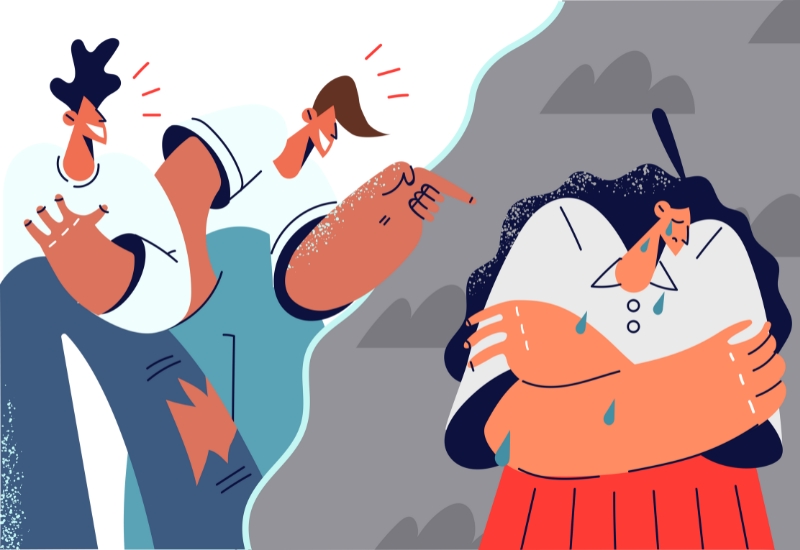
- Share on Facebook
- Share on Twitter
Guilt is a natural human emotion that is often used by others as a tool for control and manipulation. People take advantage of this by inducing feelings of guilt in others, making them feel responsible for things they don’t do, or may not have control over.
This practice is commonly referred to as the “ guilt trip ,” It can be harmful to both the person inducing the guilt and the person feeling it. What is a guilt trip ? This article will help you explore the various types of guilt trips , how they are used and provide coping techniques to help you avoid falling into this trap.
What Does Guilt Trip Mean? By understanding the dynamics of the guilt trip and learning to recognize it, you can protect yourself from emotional manipulation and maintain healthier relationships.
What is a Guilt Trip?
A guilt trip is a method employed to induce feelings of guilt or responsibility in another person with the only intent of altering their behavior or inspiring them to take a specific action. The potent influence that guilt has on human conduct makes it a useful weapon for influencing the thoughts, emotions, and actions of others. Guilt trips are often utilized to manipulate people into doing what someone else wants or to force someone to reconsider their choices and decisions.
Another important thing is understanding the difference between the natural guilt feeling and the one induced by others in you. The former means that you are guilty of something you have done wrong, have never done before, or failed to do. While in the latter one, an individual attempts to create unjustified feelings of guilt or responsibility in you with the intention of manipulating your emotions and actions.
Types of Guilt Trips
Guilt tripping refers to a manipulative behavior in which someone makes another person feel guilty or ashamed in order to control their actions or decisions. Here I have listed some of the most common types of guilt tripping:
- Emotional Guilt Tripping: This involves using emotional manipulation to make someone feel guilty for not doing something or for doing something that the manipulator disapproves of.
- Reverse Guilt Tripping: This involves making the other person feel guilty for not taking care of the manipulator or for not doing things their way.
- Historical Guilt Tripping: This involves reminding the other person of past mistakes or shortcomings in order to make them feel guilty in the present.
- Responsibility Guilt Tripping: This involves making someone feel guilty for not fulfilling a responsibility or for not doing something that is expected of them.
- Martyr Guilt Tripping: This involves making someone feel guilty for not sacrificing enough or for not putting the needs of others above their own.
It’s important to note that guilt tripping can be harmful and lead to feelings of low self-esteem and decreased self-worth. If you think you’re guilt tripped, it’s essential to set boundaries and learn to assert yourself healthily and assertively.
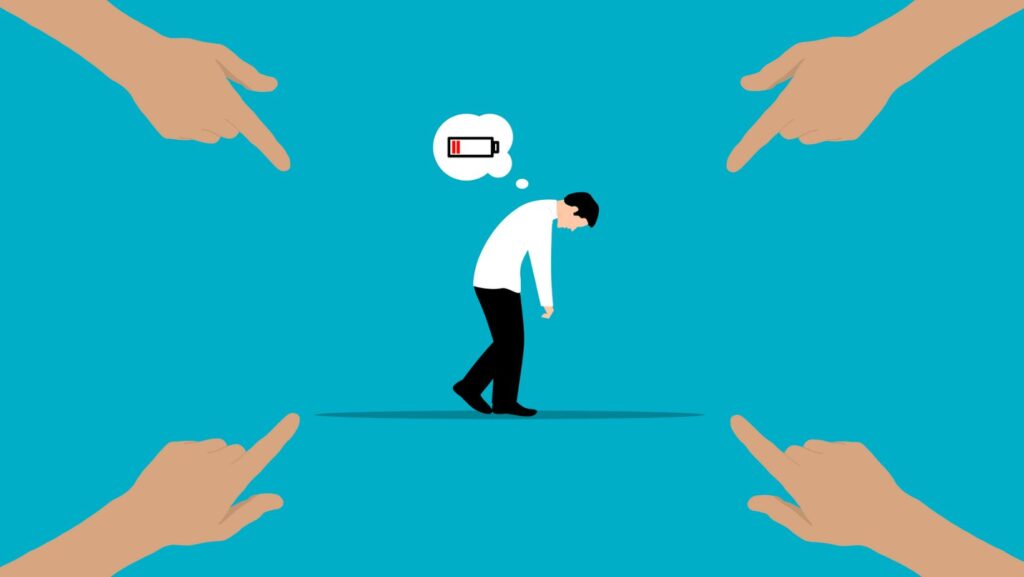
Purposes of a Guilt Trip
Why would someone guilt trip you, or why do I guilt trip others? Guilt tripping is not unpurposeful; a person who guilt trips others always has some specific purpose behind this. Read the mentioned-below purposes behind guilt tripping.
- Manipulating or controlling other’s behavior
- To gain sympathy or attention
- To enforce their own moral or ethical beliefs
- To make others feel obligated to them
- To evade assuming accountability for their own conduct.
- To express anger or frustration
- To punish or inflict emotional harm
- To resolve feelings of insecurity or jealousy
- To exact revenge or retribution
- To elicit an apology or expression of regret.
It’s important to note that guilt tripping is often an unhealthy form of communication and can damage relationships. It’s better to find alternative ways of resolving conflicts or addressing problems in a healthy, respectful manner.
Signs of Guilt Tripping
It can be challenging to recognize the signs when someone is guilt tripping you. However, some common are:
- They make you feel guilty or bad for not doing something.
- They make you feel like you owe them something for doing something for you.
- They use guilt or manipulation to get what they want.
- They make you feel like you should do something for them because they did something for you.
- They create a sense in you that you are inadequate or that they surpass you in some way.
- They make you feel like you’re responsible for their feelings.
If you’re experiencing any of these signs, someone is likely guilt tripping you.
Examples of Guilt Tripping
Here are some examples of guilt tripping :
- “You know how much this means to me, but you still won’t help me out.”
- “I just don’t understand why you can’t make time for me, even though I make time for you.”
- “I gave up so much for you, and this is the thanks I get?”
- “If your love for me is genuine, you will undertake this for me.”
These statements are examples of guilt tripping tactics, which involve attempting to manipulate and exert control over someone through emotional appeals.
It’s important to note that while guilt tripping can be an effective way of getting someone to do what you want, it is not a healthy or respectful way to treat others. It’s better to communicate openly and honestly and try to find a solution that works for everyone.
How to Stop Guilt Tripping
If feelings of guilt are constantly burdening you, taking control of the situation and stopping the guilt trip is essential. The first step to achieving this is by setting boundaries with the person who is causing these feelings. Let them know what you will and will not tolerate regarding their behavior towards you. By clearly communicating your expectations, you are letting them know you are not willing to be mistreated.
It’s also crucial to speak up and let the person know how their words or actions are affecting you. Be assertive and confident in your communication, but remain respectful and calm. Don’t be afraid to disagree with their point of view and walk away from the situation if necessary. Remember that you have the right to say “no” without feeling guilty, and it’s important to protect yourself from being manipulated into doing something you don’t want to do. If the situation becomes too overwhelming, seek help from a trusted friend or professional. The most important thing is prioritizing your well-being and taking control of the situation.
Is Guilt Tripping Gaslighting?
Gaslighting is a type of psychological manipulation in which someone makes you feel like your thoughts and feelings are wrong or invalid. It’s a form of emotional abuse in which the wrongdoer tries to make the victim question their sanity or reality.
It’s important to distinguish between guilt tripping and gaslighting , as they are two different yet related dynamics. Guilt tripping is a tactic that seeks to control through emotional manipulation but does not usually involve questioning the validity of one’s perceptions and emotions. On the other hand, gaslighting is a deliberate attempt to distort reality and make someone doubt their own thoughts and feelings.
Additionally, guilt tripping can also serve as a means of gaslighting when the person tries to make you feel guilty for things you did not do or for not performing actions you were not requested to undertake.
How to Recognize and Avoid Guilt Tripping in Relationships
It’s essential to recognize and avoid guilt tripping in relationships. Here are some useful tips for recognizing and avoiding guilt tripping:
- First, learn about the signs of guilt tripping and be aware of them.
- Express yourself and inform the individual about the impact of their words on your emotions.
- Clearly establish your limits, and fill you up with the courage to say “no.”
- Avoid falling victim to manipulation or domination.
- Don’t be scared to walk away from the situation.
- If the problem goes uncontrol and becomes unbearable, don’t hesitate to seek assistance.
How To Deal With Guilt Tripping
If you’re dealing with someone who is guilt tripping you, it’s essential to know how to handle the situation. Here are some useful tips for dealing with it:
- Stay calm, and don’t take it personally.
- Recognize the signs of guilt tripping , and don’t allow yourself to be manipulated.
- Speak up and let the person know how their words make you feel.
- Respectfully disagree with them.
- Set boundaries, and don’t be afraid to leave the situation.
- Reach out for assistance if the circumstances become excessively burdensome.
Bottom Line
Being subjected to guilt trips can lead to feelings of distress and undermine your mental and emotional health. In order to safeguard yourself from these situations, it’s crucial to identify and fend off guilt trips. By being aware of the warning signs and taking the necessary steps to handle them, you can prevent yourself from being controlled and manipulated. Remember that declining is always okay, and you are under no obligation to engage in anything you do not wish to. By taking charge of these situations, you can lead a more fulfilling life free from undue stress and pressure.
If you’re in a relationship with a person who is guilt tripping you, it’s crucial to find a way to communicate with them. Setting boundaries and seeking help if the situation becomes too overwhelming can also help.
No one deserves to be manipulated or controlled, so don’t fall into the trap of a guilt trip. Recognize the signs of guilt tripping and learn ways to handle the situation better if it arises. It is within your rights to decline, and you are not obligated to engage in any activity you do not wish to participate in.

Related Articles

10 Essential Skills for Psychologists to Achieve Success

Positive Qualities: Definition, Types and 50 Positive Character Traits Examples

When Children Live Overseas: Strategies for Effective Parent-Child Communication
Inspiration.
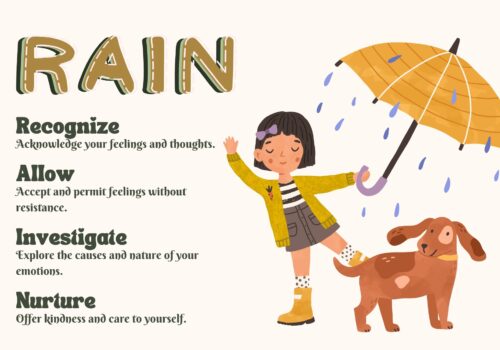
The RAIN Mindfulness Technique

Why Gen Z is Redefining the Post-Graduate Hustle (and What it Means for Businesses)
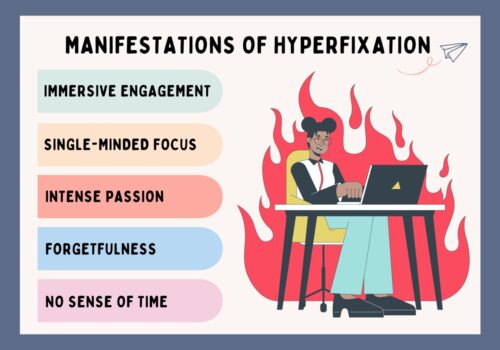
ADHD Hyperfixation: All You Need to Know
Earlier stories.
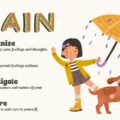
How to Help Someone with Anger Issues

Anger Management Therapy: Definition, Techniques, and Benefits

Meditation for Anger Management: How It Works & Tips for Getting Started
We use cookies to enhance your browsing experience, serve personalized ads or content, and analyze our traffic. By clicking Accept All, you consent to our use of cookies.

About Cookies
Necessary cookies help make a website usable by enabling basic functions like page navigation and access to secure areas of the website. The website cannot function properly without these cookies.
Preference cookies enable a website to remember information that changes the way the website behaves or looks, like your preferred language or the region that you are in.
Statistic cookies help website owners to understand how visitors interact with websites by collecting and reporting information anonymously.
Marketing cookies are used to track visitors across websites. The intention is to display ads that are relevant and engaging for the individual user and thereby more valuable for publishers and third-party advertisers.
Unclassified cookies are cookies that we are in the process of classifying, together with the providers of individual cookies.
Psychologily

Guilt Trip: How to Stop Feeling Guilty for Things That Aren’t Your Fault
Guilt trip is a common phenomenon many of us have experienced at some point in our lives. It is a form of emotional manipulation that involves making someone feel guilty or responsible for something they may or may not have done. Guilt trips can be subtle or overt and can be used in various settings, from personal relationships to the workplace.
Guilt trips can take many forms, but they all involve making someone feel bad about themselves or their actions. For example, a friend might guilt trip you into attending a party you don’t want to go to by saying things like, “I guess I’ll just go alone then” or “I thought we were closer than that.” In the workplace, a boss might guilt trip an employee into working overtime by saying things like, “I guess you don’t care about the success of this project” or “I thought you were a team player.”
Recognizing and coping with guilt trips is an essential skill that can help us maintain healthy relationships and boundaries. In this article, we will explore the signs, types, and impact of guilt trips and strategies for coping with them. We will also provide examples of common guilt trip scenarios and offer tips for responding healthily and assertively.
Understanding the Psychology Behind Guilt Trips
Guilt trips are a potent tool of emotional manipulation that can steer behavior to suit the manipulator’s desires. It is often used to make someone feel guilty or responsible for something, even if they have done everything they can. In this section, we will explore the psychology behind guilt trips.
Guilt-tripping is a natural form of passive-aggression that people resort to when they don’t have the skills or language to communicate their needs or feelings assertively. It is a way of making someone feel bad about themselves or their behavior, intending to get them to do what the manipulator wants.
There are several reasons why someone might use guilt trips as a tactic. One reason is that it can effectively get someone to do what they want without directly asking for it. Another reason is that it can be a way of avoiding conflict or confrontation. By making someone feel guilty, the manipulator can avoid having to confront the issue at hand directly.
Guilt trips can also be a way of asserting power and control over someone. By making them feel guilty, the manipulator can make them feel like they are in the wrong and need to make amends to make things right. This can be a way of establishing dominance over the other person.
Guilt trips are a powerful tool of emotional manipulation that can steer behavior to suit the manipulator’s desires. They often make someone feel guilty or responsible for something, even if they have done everything possible. Understanding the psychology behind guilt trips can help us recognize when we are being manipulated and take steps to protect ourselves from this behavior.
Identifying a Guilt Trip
Guilt trips are a form of emotional manipulation that can be difficult to identify, especially from people we care about. This section will discuss common signs of a guilt trip and how to recognize manipulative language and emotional blackmail.
Recognizing Manipulative Language
One way to identify a guilt trip is to pay attention to the language used by the person trying to manipulate you. Here are some examples of manipulative language to watch out for:
- Exaggeration: The person may use extreme language to describe a situation, making it seem worse than it is. For example, they might say, “You always do this,” when it’s only happened a few times.
- Generalization: The person may use general statements that are difficult to argue against. For example, they might say, “Everyone else is doing it,” or “You should know better.”
- Personal Attacks: The person may attack your character or make you feel guilty for who you are. For example, they might say, “You’re so selfish,” or “You never think about anyone else.”
- Conditional Statements: The person may make their love or approval conditional on your behavior. For example, they might say, “If you loved me, you would do this,” or “I’ll only forgive you if you do what I want.”
Spotting Emotional Blackmail
Another way to identify a guilt trip is to look for signs of emotional blackmail. Emotional blackmail is a manipulation involving fear, obligation, or guilt to control someone else’s behavior. Here are some common signs of emotional blackmail:
- Threats: The person may threaten to end the relationship or harm themselves or others if you don’t do what they want.
- Intimidation: The person may use their size, strength, or power to intimidate you into doing what they want.
- Sulking: The person may sulk or withdraw affection to make you feel guilty and manipulate you into doing what they want.
- Victimhood: The person may play the victim and make you feel responsible for their emotions and well-being.
Recognizing these signs can help you identify when someone uses a guilt trip to manipulate you. By staying aware of these tactics, you can take steps to protect yourself and maintain healthy boundaries in your relationships.

Effects of Guilt Trips
Guilt trips can have a significant impact on our mental health and relationships. Here are some of the effects:
Impact on Mental Health
Guilt trips can lead to negative emotions such as anxiety, depression, and low self-esteem. When we feel guilty, we may become more self-critical and start to doubt our abilities and worth. This can lead to a vicious cycle of guilt and negative self-talk, which can be challenging to break.
In addition, guilt trips can also cause us to feel trapped and powerless. We must comply with the other person’s demands, even if it goes against our values and needs. This can lead to helplessness and resentment, further damaging our mental health.
Strain on Relationships
Guilt trips can also strain our relationships with others. When someone uses guilt to manipulate us, it can erode trust and respect. We may feel like we can’t rely on the other person to be honest and straightforward with us, which can damage the foundation of any relationship.
Furthermore, guilt trips can also create a power imbalance in relationships. The person using guilt may feel like they have the upper hand and can control the other person’s behavior. This can lead to resentment and a lack of mutual respect, further damaging the relationship.
It’s essential to recognize the adverse effects of guilt trips and take steps to protect our mental health and relationships. This may involve setting boundaries, communicating our needs and feelings assertively, and seeking support from a therapist or trusted friend.
Handling Guilt Trips
Dealing with guilt trips can be challenging, but there are ways to handle them effectively. This section will discuss some strategies that can help us cope with guilt trips.
Effective Communication Strategies
Effective communication is one of the most important ways to handle guilt trips. We need to communicate clearly and assertively without being aggressive or confrontational. Here are some tips for effective communication:
- Stay Calm: It’s essential to stay calm and composed when dealing with guilt trips. This can help us avoid getting defensive or emotional, which can make the situation worse.
- Be Assertive: We need to be assertive and stand up for ourselves when dealing with guilt trips. This means expressing our needs and feelings clearly and confidently without being aggressive or passive.
- Use “I” Statements: Using “I” statements can help us express our feelings without blaming or accusing others. For example, instead of saying, “You’re always making me feel guilty,” we can say, “I feel guilty when you say things like that.”
- Listen Actively: Active listening involves paying attention to what the other person is saying and trying to understand their perspective. This can help us find common ground and resolve conflicts more effectively.
Setting Boundaries
Another critical strategy for handling guilt trips is setting boundaries. We set boundaries for ourselves to protect our emotional and physical well-being. Here are some tips for setting boundaries:
- Identify Your Limits: We need to identify our limits and know what we are unwilling to tolerate. This can help us set clear boundaries and communicate them effectively.
- Be Consistent: Consistency is vital when it comes to setting boundaries. We must stick to our limits and not give in to guilt or manipulation.
- Be Firm: We must be firm and assertive when communicating our boundaries. This means saying “no” when necessary and not feeling guilty.
- Take Care of Yourself: When setting boundaries, taking care of ourselves is essential. This means prioritizing our needs and well-being and not sacrificing them for others.
Handling guilt trips requires effective communication and setting clear boundaries. By staying calm, assertive, and consistent, we can protect ourselves from emotional manipulation and maintain healthy relationships.
Preventing Guilt Trips
Guilt trips can be emotionally draining and damaging to relationships. Fortunately, there are steps we can take to prevent them from happening. This section will discuss two critical strategies for preventing guilt trips: fostering healthy relationships and promoting self-awareness.
Fostering Healthy Relationships
One of the best ways to prevent guilt trips is to foster healthy relationships with the people in our lives. This means communicating openly and honestly, setting boundaries, and respecting each other’s feelings and needs.
Here are some tips for fostering healthy relationships:
- Communicate openly and honestly: Be honest about your feelings and needs, and encourage others to do the same.
- Set boundaries: It’s essential to set boundaries and stick to them. Let others know what you are and are not willing to do.
- Respect each other’s feelings and needs: Show empathy and understanding for others’ feelings and needs, and expect the same in return.
When we foster healthy relationships, we create an environment of mutual respect and understanding, making guilt trips less likely to occur.
Promoting Self-Awareness
Another key strategy for preventing guilt trips is promoting self-awareness. When we know our emotions and needs, we are less likely to be manipulated or guilt-tripped by others.
Here are some tips for promoting self-awareness:
- Recognize your own emotions: Take time to identify and understand your needs.
- Practice self-care : Take care of yourself physically, emotionally, and mentally.
- Set realistic expectations: Be realistic about what you can and cannot do, and don’t feel guilty for saying no.
When we are self-aware, we can better recognize when someone is trying to guilt-trip us and take steps to prevent it from happening.
Preventing guilt trips requires fostering healthy relationships and promoting self-awareness. By following these strategies, we can create a more positive and supportive environment in our relationships and avoid the adverse effects of guilt trips.
Frequently Asked Questions
What are some signs that someone is trying to guilt trip you.
When someone is trying to guilt trip you, they may use certain tactics to make you feel responsible for their emotions or actions. Some signs to look out for include:
- Pointing out their own efforts and hard work to make you feel as if you’ve fallen short.
- Making sarcastic or passive-aggressive remarks about the situation.
- Using emotional blackmail to make you feel guilty for not complying with their wishes.
- Manipulating your emotions by making you feel responsible for their feelings.
How can you respond to someone who is guilt-tripping you?
If someone is trying to guilt trip you, it’s important to set boundaries and communicate your feelings. Here are some ways you can respond:
- Acknowledge their feelings, but don’t take responsibility for them.
- Stick to your own values and beliefs, even if it means disagreeing with the other person.
- Avoid engaging in arguments or becoming defensive.
- Use “I” statements to express your feelings and needs.
- Take a break or step away from the situation if necessary.
What is the difference between guilt tripping and expressing feelings?
Expressing feelings is a healthy way to communicate with others, while guilt tripping is a manipulative tactic used to control others. When someone expresses their feelings, they are sharing their emotions and thoughts without expecting a specific outcome or response. Guilt tripping, on the other hand, involves using guilt as a tool to change how others think, feel, and behave.
Is guilt tripping considered a form of manipulation?
Yes, guilt-tripping is considered a form of emotional manipulation. It involves using guilt as a tool to control others and make them feel responsible for someone else’s emotions or actions. This can be harmful to the other person’s mental health and well-being.
What are some ways to stop someone from guilt-tripping you?
If someone is guilt-tripping you, there are several ways you can stop the behavior:
- Set boundaries and communicate your feelings.
- Refuse to take responsibility for someone else’s emotions or actions.
Can guilt tripping be considered a form of emotional abuse?
Yes, guilt-tripping can be considered a form of emotional abuse. It involves using guilt as a tool to control others and make them feel responsible for someone else’s emotions or actions. This can be harmful to the other person’s mental health and well-being. It’s important to recognize the signs of emotional abuse and seek help if necessary.
Leave a Comment Cancel reply
Save my name, email, and website in this browser for the next time I comment.
- Add To Collection Collection

A downloadable game for Windows and macOS
SHORT DEMO: Still a work in progress!
You have accidentally summoned an evil spirit. You must get rid of the spirit before things get too out of control.
Hello everyone I'm super sorry that this is so short! I'm struggling to come up with writing for this game. If you have any ideas look in the description of this game for a form, if you would like to share! P.s You will get credit if you want a mention!
Link to Form: https://docs.google.com/forms/d/e/1FAIpQLSeuQPHLfAVUeO0vgSKZJ2An7nM2Z1CD-HW8cWxN...
Log in with itch.io to leave a comment.
I like the style, it reminds me of twilight (I dont know why) and the story even tho the demo was short! I cant wait for new updates or anything :D


- Entertainment & News
- Career & Money
- Health & Wellness
- Love Quotes
- Expert Advice
- Radical Acceptance
- search articles
- find an expert
- sign up for newsletter
7 Clever Ways To Deal With People Who Constantly Guilt Trip You
It's all about control..
By Judith Orloff — Last updated on Feb 16, 2023

People who guilt trip are world-class blamers, martyrs, and drama queens. They know how to make you feel bad about something by pressing your insecurity buttons.
They use guilt to manipulate so you do what they desire. They like to see you squirm and throw you off your game. This gives them a sense of power and control.
RELATED: 6 Clever Ways To Beat Toxic People At Their Own Mind Games
Oftentimes, people who guilt trip others are hiding in plain sight. They can be your romantic partner, your closest friends, or even your family members.
But in order to identify whether or not you are being manipulated with this behavior, it's important to know what exactly guilt-tripping is, and the signs to look out for. This way, you will understand the best ways to respond.
What is guilt-tripping?
Guilt-tripping is a concept that involves causing another person to feel guilt or a sense of responsibility to change their behavior or take a specific action.
Essentially, guilt-tripping is intentionally manipulating someone by making them feel guilty so they will do what you want.
Guilt-tripping is a natural passive-aggressive technique people use when they can't properly communicate their needs or wants. Guilt can be conveyed with words, tone, or even a glance.
To get their way, these people exploit your desire to please them or be a good person. They often start sentences with, “If it wasn’t for you..." or “Why don’t you ever...” They’ll talk about life being unfair and compare your efforts with others who are doing it better.
They also remind you of how much they always do for you. After you’ve been guilt-tripped, you may feel two inches tall if you believe these people’s crafty ploys.
What are the signs someone is guilt-tripping you?
1. they use statements that elicit a guilty response..
This is an obvious sign of a guilt trip because what they said caused a direct reaction of guilt in the other person.
That is the entire point of a guilt trip. Especially if they said it in a way to get you to do something for them.
2. They use sarcasm.
Unclear statements, sarcasm, and ambiguity are a guilt tripper's best friends. This way, they can say what they want and it can be perceived as positive or negative depending on who they say it to.
3. You avoid them.
If you find yourself actively avoiding coming into contact with this person because they make you feel guilty, they could be manipulating you.
If they always guilt trip you, you may find yourself avoiding communicating with them because you don't want to continue to feel guilty.
4. They use the silent treatment.
Guilt trippers hate it when they don't get what they want — that's why they are manipulating you. But if you see through their BS, they will become offended and give you the silent treatment as punishment.
This is a way to make you feel guilty for assuming they are guilt-tripping you. It's like a guilt trip within a guilt trip.
5. They make leading remarks.
The remarks are meant to trigger your response to do better or to return the favor. The comments will probably have something to do with pointing out how they do stuff for you so that you owe them a favor.
Be on the lookout if they say something like, "Don’t I do things for you all the time?" You may want to think back to see if they have actually done things for you or just made you feel guilty about it.
RELATED: 12 Ways To Deal With People Who Think They Know Everything
How to Deal with Guilt Trippers
1. surrender the notion that you have to be perfect..
The guilt tripper tends to lose interest if you don’t go for their misguided manipulations.
Everyone makes mistakes. It’s human. You don’t have to be perfect or squeaky clean. If you hurt someone or made a mistake, accept that you can’t change the past.
But you can make amends when appropriate. Apologize for offending a relative, pay back money owed, or simply convey, “I wish I had been there for you more.”
Focusing on solutions instead of wallowing in guilt is a way to surrender to positive forces, rather than succumbing to the pull of negativity.
2. Surrender guilt with tears.
One physical way to release guilt if you’re fixated on a mistake you made, or not meeting someone’s expectations, is to cry. Do this when you’re alone or with a supportive person.
Tears release stress hormones and help you heal. As you cry, your body expels guilt and tension. This helps you let it all go.
Don’t fight the surrender of crying. Let tears cleanse stress from your body.
3. Know your guilt buttons.
No one can make you feel guilty if you don't believe you’ve done something wrong. However, if you doubt yourself, guilt can creep in.
Believing you are doing the best you can in a situation can quell any guilt and bring comfort no matter what anyone says.
4. Set limits.
Start a conversation positively. In a matter-of-fact tone say, “I can see your point of view. But when you say (fill in the blank), my feelings are hurt. I’d be grateful if you didn’t keep repeating it.”
You might make some topics taboo such as money, sex, or personal appearance. Keep the conversation light, don’t go for their bait, and try to gradually heal your insecurities so you don’t buy into their guilt trips.
5. Make them ask you outright.
One way to stop a guilt trip is to come out and confront them, face-to-face. Try to keep it light and not like you're attacking them, but be a matter of fact and assertive.
Tell them to directly ask you for your help without a guilt trip or tugging at your emotions.
6. Don't take it personally.
Another way to stop a guilt trip in place is to depersonalize it. Remember that this person is guilt-tripping you because of their issues, not yours.
This isn't your fault and you shouldn't feel bad about not wanting to do something.
7. Respect your right to say no.
Convey to the guilt tripper that you have a right to say no to anything you feel you cannot or do not want to do.
Not only should they respect your right to say no, but so should you. If your gut is telling you that you should not do a certain task, listen to yourself and say no.
Be aware that there’s a difference between healthy remorse and guilt. Remorse is regretting how a situation turned out or how you behaved. Then you can acknowledge the mistake and make amends. You’ll feel genuinely sorry, but you don’t stay stuck there.
Guilt, however, is when you become attached to remorse and self-blame, a reverse form of ego where you keep focusing on a “lacking” or a mistake.
RELATED: 10 Signs Your Partner Is Constantly Guilt Tripping You
Judith Orloff, MD is the author of 'The Empath's Survival Guide: Life Strategies for Sensitive People.' Dr. Orloff is a psychiatrist and empath who combines the pearls of traditional medicine with cutting-edge knowledge of intuition, energy, and spirituality.
This article was originally published at Huffington Post . Reprinted with permission from the author.

15+ Guilt Trip Examples: How to Recognize and Handle Them
- Last updated - October 16, 2023
- Final edit by Johan Froentjes

Beste Güneysu Şeker
Contributor

Emma Reliason
Beste Güneysu Şeker is a clinical psychologist while Emma Reliason is a graduate of B.A. in Psychology. Their expertise greatly enriched this article and play a crucial role in our commitment to delivering accurate and informative content.
When was the last time you were coerced into making a choice? It might have resembled a guilt trip in many ways.
This technique is known as “guilt-tripping”, and it involves making someone feel horrible about themselves, even though the weren’t at fault.
This article aims to define guilt-tripping, explore its numerous forms, and provide solutions for handling it.
Table of Contents

Emma Reliason, graduate of B.A. – Psychologist, gives an example of guilt-tripping:
Let’s take Sarah and Mark, and let’s say Sarah is diligent about locking the front door before work to keep their furry friend inside. But the next day, Mark accuses her of forgetting to lock up, saying the dog got out because of her mistake (despite him knowing full well it was his fault).
Sarah is certain she locked up, but Mark keeps telling her otherwise, calling her ‘lazy’ and ‘irresponsible’.
When your partner induces feelings of guilt, it’s a form of emotional abuse. Guilty feelings are a type of behavior that is difficult to handle but even more difficult to recognize. The silent treatment hardly ever works, and healthy communication is needed to deal with excessive guilt.
- ‘ Examples Gaslighting – Protecting Yourself Against Abusive Behavior ‘
- ‘ How Dating a Narcissist Changes You – Understanding Narcissism ‘
- ‘ Why is My Boyfriend Mean? Understanding Abusive Behavior in Relationships ‘
Guilt Trip Examples in Real Life
There a quite a few signs of guilt tripping to look for, as guilt trip manipulation isn’t limited to 1 or 2 tactics. We’ve assembled some of the most common tactics, so you can spot the signs of guilt-tripping before it’s too late.
Emotional Manipulation – Emotional Guilt Trip
Imagine a situation where a friend constantly brings up how disappointed and hurt they are because you couldn’t attend their event, even though you had a valid reason for not being able to make it. They may excessively emphasize their sadness, making you feel guilty for prioritizing something else.
Blame and Accusations – Emotional Guilt Trip
Beste Güneysu Şeker indicated that every person born in society wants to be noticed, approved and appreciated by their family and surroundings. A person whose existence cannot be verified and confirmed cannot know who person is and cannot position oneself anywhere.
Narcissism is the need for self-love and excessive praise. Narcissistic people fear criticism and rejection. Because they are egocentric, they complicate their personal lives and the lives of those they communicate with. The most distinctive features of narcissistic people are self-esteem, seeking special attention, and the ability to manipulate.
Şeker also states that these people can be seen everywhere, as well as from people in my close circle. These people use projection, also known as the ego defense mechanism, to attribute the situations that happen to them to someone else. Thus, they are emotionally manipulated.
Picture a scenario where a family member blames you for their own unhappiness. They might say things like, “You never visit me, and that’s why I feel so lonely and miserable.” They place the blame squarely on you, making you feel responsible for their emotional state.
Playing the Victim – Psychological Guilt Trip
Suppose a colleague constantly portrays themselves as the victim in work situations, emphasizing how they always get overwhelmed with tasks and how no one appreciates their efforts. They seek sympathy from others, making them feel guilty for not providing more assistance.
Emotional Blackmail – Emotional Guilt Trip
Şeker also determined that due to human nature, interpersonal relationships are very diverse and variable. This also applies to romantic relationships. Sometimes partners may find it difficult to keep up with changes in the relationship or they can easily adapt. This situation is somewhat related to the personality traits of that partner. Partners with “Opennes to New Experiences”, one of the personality traits we call the Big Five Personality Trait , will adapt to changes more quickly.
On the other hand, with a partner who does not have this personality trait, they will have difficulty adapting to changes or the wishes of the other partner. At this point, the attitude and attitudes of the partners will determine the course of the relationship. Sometimes, the other person in the relationship can put pressure on a partner who has difficulty adapting to change. Person can use emotional blackmail to meet at any point. They may use their own love or other emotions as blackmail material to impress their partner.
Imagine a romantic partner who threatens to end the relationship whenever you disagree with them or express your own needs. They might say, “If you really loved me, you would do this for me,” creating a sense of fear and guilt to manipulate you into complying with their demands.
Manipulative Language – Psychological Guilt Trip
Consider a friend who frequently uses guilt-inducing phrases when they don’t get their way. They might say, “I thought you were my true friend, but apparently, you don’t care about me enough to help,” putting pressure on you to fulfill their wishes by making you feel guilty about your friendship.
Typical Cases of Guilt-Tripping
Understanding the common types of guilt trip manipulation is essential to avoid being a victim of guilt tripping in the future. Appeals to guilt can be a form of manipulation often used by manipulative people.
Luckily, mental health counselors and therapists can provide answers about guilt psychology and help individuals deal with the adverse effects of guilt trips.
Emotional Guilt Trips
The act of manipulating another person’s emotions by making them feel guilty for having unmet needs or being wounded by someone else’s actions is known as an emotional guilt trip. Such criticism includes statements like “you don’t care about me” and “you’re not there for me when I need you.” Like manner, guilt-tripping makes it difficult for people to express their emotions and badly damages relationships.
Psychological Guilt Trips
Psychological manipulation through guilt trips is a toxic behavior that can harm interpersonal relationships. Self-inflicted guilt trips and the types of guilt trips used by manipulative people are common forms of psychological manipulation.
Psychological guilt tripping manipulates one’s thoughts and beliefs to make one feel guilty. This group of criticisms includes statements like “you’re not being true to yourself” or “you’re not living up to your potential.” Like other forms of guilt-tripping, this can damage one’s feeling of dignity and value.
Healthy and firm boundaries are necessary to protect oneself from negative emotions caused by guilt-tripping. If you feel a sense of responsibility for someone else’s negative emotional response, it’s essential to have an honest conversation about their manipulation tactics. Common signs of guilt trips include feeling busy or overwhelmed with a busy schedule and feeling a lack of personal growth or negative feelings towards oneself.
Social Guilt Trips
Ever had that feeling where your friends want you to come to an event, but you just don’t feel like it? In this case, the benefits of guilt are that they’ll likely make you go, and you’ll probably have a good time. This is healthy guilt!
However, if you’re dating a narcissist, you will become the target of guilt trips without healthy responses or casual conversation.
Social manipulation includes “guilt trips” and using someone’s status or reputation as a shield. Among these are “what will people think?” and “are you failing the team?” The effects of this kind of guilt trip on a person’s relationships and self-worth may be severe.
Şeker says that is a well-known subject that many of us know or are directly exposed to during the primary school years when we started our student life; is bullying. While our classmate’s saying “I won’t talk to you if you don’t give me your pen” in primary school age creates a form of bullying. In later processes, for example, what we call peer bullying in high school can turn into a social pressure. For example; It can be seen as “if you want to hang out with us, you have to smoke” or “you should attend the weekend friend meetings, you should do this so that you don’t get ostracized”. Generally bullies prefer emotionally sensitive people, psychologically introverted, and weak in communication.
According to Şeker, if you have these characteristics, you may become more vulnerable to being bullied and socially blamed. To avoid being exposed to this situation, you should protect your psychological strength, control mood changes and improve your communication skills.
Guilt-tripping is manipulative behavior that can harm one’s mental health and interpersonal connections. If you know someone is trying to manipulate you by making you feel bad about yourself, you may defend yourself and put up some walls. However, if you punish yourself repeatedly for alleged wrongdoing, get professional assistance to create constructive coping skills. Remember that nobody can make you feel horrible about yourself or disgrace your decisions.
Guilt Trip Examples

As established previously, guilt-tripping is a form of gaslighting. Recognizing the common guilt trip sentences can positively impact this problematic behavior. Here are some examples of guilt-tripping:
Emotional Guilt Trips:
- “I can’t believe you would do this to me after everything I’ve done for you.”
- “You always disappoint me. I don’t know why I bother.”
- “I guess I’ll just suffer alone since nobody cares about how I feel.”
- “I’m so hurt by your actions. I thought you cared about my happiness.”
- “I don’t know how I’ll ever recover from this. You’ve broken my heart.”
Psychological Guilt Trips:
- “If you loved me, you would know what I need without me having to ask.”
- “You should feel ashamed of yourself for thinking that way.”
- “You’re just like everyone else who’s let me down. I can’t trust anyone.”
- “I don’t know why I even bother trying. Nothing I do is ever good enough for you.”
- “You’re making me question my own sanity with your selfishness.”
Social Guilt Trips:
- “Everyone will think poorly of you if you don’t help me out.”
- “You’re going to ruin our reputation if you don’t help me with this.”
- “Real friends would never treat each other this way.”
- “People like you are why our society is so selfish.”
- “I can’t believe you would abandon me in front of everyone like this.”
Actual Case Studies of Guilt Trips
It has been found that utilizing guilt as a form of control has detrimental effects on both the manipulator and the target of the control. We’ve included research from several studies to keep our content accurate with sensitive content.
Guilt trips may be detrimental in the following ways, in particular:
- Guilt trips can make it difficult for friends and lovers to trust and connect with each other because they are stressful for everyone involved.
- Guilt tripping is proven to lead to increased anxiety, hopelessness, and other unpleasant emotions that can harm a person’s mental health and general well-being.
- One’s sense of self-worth is damaged by guilt-tripping, furthering one’s limited conceptions of who they are.
For instance, one study examined how guilt trips impacted romantic relationships and were published in the Journal of Social and Personal Relationships. The results showed that those who used guilt trips regularly had worse levels of emotional stability, were less able to trust those around them and had lower levels of relationship satisfaction.
Another study published in the Journal of Child and Family Studies discussed how parents who made their kids feel guilty influenced their connections with them. The study found that mothers who used guilt trips with their kids had more unfavorable emotions and lower levels of relationship satisfaction.
Can Guilt Affect How You Connect with Others?

Techniques that make people feel guilty can be harmful to relationships. As a result, there may be a communication breakdown, and the relationship may become hostile and resentful. Decreased self-assurance and a stronger sensation of solitude are two more effects.
What Are The Effects of Guilt-Tripping?
Care for mental health needs to be given right away. Guilt-tripping has been associated with detrimental impacts on one’s mental health. It can result in low self-esteem, guilt, and humiliation.
It can also cause people to doubt their judgment and self-worth, leading to anxiety and depression. In rare cases, it may even lead to a breakdown in mental health and the need for professional help, either from a family therapist or other mental health professionals.
How to React to Guilt Tripping
It’s terrible to be made to feel guilty, but it may be prevented by building up your defenses. Here’s how to respond when someone tries to damage you on purpose.
Identifying the Real Cause of Manipulation
The first step in stopping guilt trips is to comprehend why they happen. It is usual to trick or influence others by making them feel horrible about themselves, and guilt is a typical tool for this. This is crucial to keep in mind, as is the possibility that the individual trying to insult you is illiterate.
Setting Boundaries

Setting limits and being clear that you will not put up with anyone making you feel awful is essential. You could, for instance, choose to put less time and effort into particular relationships or decline to comply with requests that give you anxiety.
Beste Güneysu Şeker expressed that: “In order to have control in our lives, to establish and maintain healthy relationships, we need to set some boundaries. Whatever our role in our relationship with another individual, we cannot control the actions of others.
Boundaries are most important for finding a balance between ourselves and our environment. Protecting the boundaries you draw for this purpose and showing flexibility when necessary play an important role in managing relationships healthily.
One is expected to be consistent when setting boundaries. For example; If a family member calls very often, the individual may say that they do not answer calls during some hours. If the calls continue, it is important to return the phone when available instead of answering it during those hours.
Following this, the individual should not call that family member at those times and should be consistent own speech and behavior. Setting boundaries and articulating them clearly protects us in the first place. Because the family member mentioned in the example may have a narcissistic personality trait, so they can manipulate us emotionally to hide their unhappiness.
The fact that the boundaries were drawn from the beginning, for example, that he was told as a rule that we would not pick up the phone at that hour, would also eliminate the accusations that “actually you do not answer my phone and I feel unhappy.”
Read here: ‘ A Relationship Can Be Damaged By: Common Factors & How to Avoid ‘
The Value of Communication
There are not many articles where we don’t mention the aspect of communication. What is even a bad emotion if you’re unable to talk about it?
Effective communication is necessary to avoid guilt trips. Don’t let people’s attempts to undermine your self-esteem affect your actions. Keep your composure and confidence. Just state how you feel and what you think needs to change. Being courteous and avoiding altercations is best if you want the issue resolved.
In some cases, your partner could be stonewalling you. Stonewalling can be a manipulative tactic, but it can also come from your partner’s inability to express his emotions. In the case of the second, your relationship is at risk, and a professional therapist might help.
Try to ask open-ended questions and try to get some healthy responses from your partner. Look for signs of guilt (ironic), and ask additional questions to figure out the meaning of their behavior
- ‘ Tips for Communicating in Relationships: Build a Stronger Bond ‘
- ‘ She Divorced Me Because I Left Dishes at the Sink: The Importance of Communication ‘
Recognize and Address

An awful guilt trip can be a challenging experience that can cause caregiver guilt, especially in abusive relationships. Passive-aggressive behavior and other abusive behavior patterns can be automatic behaviors stemming from a bad friend or a lack of action.
You should really try to express that you are the victim of guilt-tripping. To do this, try to ask open-ended questions like: ‘How do you think that makes me feel?’ or ‘Is there anything you can do to refrain from making me feel guilty for something I didn’t do?’
However, assertive communication and setting boundaries without malice can be a buffer between people and help prevent destructive behavior from becoming a pattern.
Recognizing and addressing guilt-tripping behaviors is essential to communication in any healthy relationship.
Getting help from a professional
The danger of guilt trip manipulation, similar to gaslighting , is that you can become unsure of your own reality. You’ll start to wonder whether it was actually your fault, while everyone around you would tell you it’s not.
You should seek expert advice if you frequently suffer from guilt trip manipulation. A therapist or counselor can help you overcome guilt tripping and its adverse effects on your relationships and mental health by providing support, advice, and coping mechanisms.
To summarize, dealing with the behavior known as “guilt-tripping” can be difficult, but if you take the necessary precautions, you can protect yourself from its negative consequences. Always remember to set boundaries, use precise language, and request help when needed. Following these steps can regain control of your life, protect your relationships, and maintain excellent mental health.
No, guilt-tripping and gaslighting are not the same things. Guilt-tripping involves making someone feel guilty or responsible for something. At the same time, gaslighting is a more complex form of emotional abuse that involves manipulating someone’s perception of reality and making them doubt their memory and sanity.
Individuals with narcissistic personality disorder use narcissistic guilt-tripping to manipulate and control others. This involves making others feel guilty for not meeting their needs and blaming them for adverse consequences.
To outsmart a guilt tripper, setting boundaries and communicating clearly is important. The key is to recognize when you are being guilt-tripped and to stand up for yourself by setting limits, being assertive, and saying no without feeling guilty.
To escape guilt-tripping, you must understand that you are not responsible for other people’s feelings and actions. Establishing boundaries, refusing to take responsibility for someone else’s actions or emotions, and seeking support from friends, family, or a therapist can help you escape guilt-tripping.
Yes, guilt-tripping can be a form of emotional abuse that can have long-term effects on mental health. Guilt-tripping can cause a person to feel anxious, depressed, and overwhelmed, leading to negative self-talk and low self-esteem.
Yes, the silent treatment, otherwise known as stonewalling , could be a form of guilt-tripping. When a person uses silent treatment to manipulate someone, they are attempting to make that person feel guilty for some perceived wrongdoing, even if they haven’t done anything wrong.

5 Surefire Signs the No Contact Rule is Working

Why is the First Year of Marriage the Hardest? 6 Challenges You Might Face

How to Handle Jealousy - 13 Great Strategies

The Foolproof Guide to Casual Relationships - Expert Tips and Advice

How to Fix a Codependent Relationship - 10 Great Steps

Deal With a Stonewalling Husband - 15 Effective Ways
Top stories, spark more love in your relationship.
Want to get daily blog posts directly to your inbox each morning? To subscribe, simply provide us with your email address.
Email address:

Top Creators
Johan Froentjes
At Road to Relationships, we aim to empower you with researched insights and actionable tips for building meaningful connections.
Our blog, curated by expert writers adhering to brand guidelines, is a trusted resource for dating, building partnerships, or enhancing existing relationships.
Subscribe to our community
Copyright © Road To Relationships | All Rights reserved
Disclosure & privacy policy.
13 Tips on How I Deal With My Narcissistic Mother Guilt Trip

Dealing with a narcissistic mother guilt trip is no easy feat, at least for me it wasn’t.
From a young age, I grappled with the weight of her unrealistic expectations and values, which often left me feeling inadequate and unworthy.
It is a struggle many can relate to, and in my journey to overcome this emotional burden, I’ve learned a few valuable lessons.
Below, I’ll share the strategies I have honed, drawing from my experience as a black sheep in the family, my supportive network outside it, and my passion for self-discovery.
These insights have been my lifeline, empowering me to break free from the suffocating grasp of a narcissistic mother’s guilt trip.
- Prioritize kindness over confrontation when dealing with a narcissistic mother. Responding with a smile and a kind word can disarm manipulative tactics.
- Avoid engaging in arguments with your narcissistic mother as it’s like adding fuel to the fire. Instead, choose disengagement over confrontation.
- Seek therapy or counseling to gain insights, heal, and strengthen your ability to deal with her manipulative behaviors.
Table of Contents
How I Deal With My Narcissistic Mother Guilt Trip?
My narcissistic mom uses guilt-tripping like a pro. She should won a gold medal for that.
It wasn’t easy or fun, but through my experiences, I’ve come up with strategies that helped me overcome the heavy burden of unrealistic expectations and self-doubt .
From simple acts of kindness to seeking professional help, I was able to find peace, build resilience, and ultimately break free from the grip of this emotional turmoil.
1. Smile and Say Something Kind
It may sound deceptively simple, but it’s a powerful tool in maintaining your own emotional balance.
When faced with my mother’s unrealistic expectations and harsh criticisms , I’ve found that reacting with anger or defensiveness only fuels the negativity.
Instead, offering a genuine smile and a kind word can defuse the situation.
It’s not about agreeing with her unreasonable demands or accepting blame that isn’t yours, but rather about disarming her manipulative tactics.
By responding with kindness, you not only avoid falling into her emotional trap but also create a subtle shift in the dynamic.
It can catch her off guard, disrupt the cycle of guilt-tripping, and potentially lead to more constructive conversations.
It is a small but significant step in regaining control and protecting your own well-being in the face of a narcissistic mother’s manipulation.

2. Restrain Yourself From Calling Her Names
There was one evening when my mother’s unrealistic demands and hurtful comments reached a boiling point as she criticized my choices and lifestyle.
The frustration and anger welled up inside me, and I was on the brink of responding with equally hurtful words. It was tempting to call her names or lash out in anger.
But I’ve learned the hard way that name-calling and confrontations usually lead to more turmoil rather than resolution.
Instead of descending into an ugly confrontation, I took a deep breath and excused myself from the situation. I retreated to a quiet place, allowing my emotions to settle.
Because I resisted the temptation to engage in name-calling and chose to walk away instead, I not only protected myself from further emotional harm but also maintained a sense of dignity and self-control.
It’s a powerful strategy to disengage from the cycle of negativity and prevent it from spiraling out of control.
3. Try Your Best to Understand Why She Is the Way She Is
Attempting to understand her motivations and background has proven to be a crucial strategy. It might not always be easy, but it’s an exercise in empathy and self-preservation.
I’ve often pondered what could have shaped my mother’s unrealistic values and her inclination to resort to guilt trips.
By delving into her past, I discovered that her upbringing and life experiences played a significant role in molding her into the person she is today.
It doesn’t excuse her behavior, but it sheds light on the roots of her actions.
This understanding has enabled me to approach our interactions with greater empathy. It allowed me to see her as a complex individual with her own struggles and insecurities.
It’s a subtle shift in perspective that helps me maintain my emotional balance and engage in more constructive conversations.
When you’re able to comprehend the “why” behind her actions, you’ll be taking a significant step towards depersonalizing her guilt trips and protecting your own well-being in the process.
This strategy, while challenging, can contribute to healthier dynamics when dealing with a narcissistic mother.
4. Prioritize Your Self-Care and Well-Being
As daughters of narcissistic mothers , the importance of prioritizing self-care and well-being cannot be overstated.
I would even say it’s a strategy born out of necessity and self-preservation. One particular chapter of my life vividly illustrates this point.
I found myself entangled in a never-ending cycle of guilt and emotional manipulation, where my mother’s unrealistic demands and criticisms took a toll on my mental and emotional health.
It was a breaking point that made me realize that I needed to put myself first for a change.
When I did, I was able to step away from the constant emotional turmoil. This meant setting boundaries, seeking therapy, and engaging in activities that nourished my spirit.
It was a process that allowed me to rebuild my self-esteem, regain emotional stability, and cultivate resilience.
It’s a reminder that taking care of oneself is not selfish but an essential act of self-preservation so you can emerge stronger and with your well-being intact.
5. Document Interactions for Clarity
In dealing with my mom’s narcissism, journaling at night became my lifeline. I started doing this during a particularly trying period when my parents were going through a divorce.
Each night, I’d sit down with pen and paper, pouring my thoughts and emotions onto the page.
It allowed me to record the hurtful words and unrealistic demands my mother had thrown my way. More importantly, it provided a sense of clarity and detachment from the emotional storm.
Through this practice, I could step back and analyze the interactions from a more objective perspective.
It became a powerful tool to identify patterns in her behavior and understand how her guilt trips affected me.
As my mother’s manipulation escalated during the divorce, my journal became a record of the emotional toll it took on me.
Documenting these interactions not only served as a form of emotional release but also offered me a clearer insight into the dynamics at play.
It was an essential step towards maintaining my emotional well-being and finding ways to cope with the challenges of living with a narcissistic mother.
6. Avoid Engaging in Arguments
Avoiding arguments with a narcissistic parent is hard, but it is necessary. A particular episode from my life exemplifies the wisdom of this approach.
During a heated argument with my narcissistic mother, her unrealistic expectations and harsh criticisms reached a crescendo.
The emotional tension in the room was palpable, and as an adult child, I was all too familiar with the feeling of guilt that often accompanied these confrontations.
The harmful behavior of engaging in an argument, which I’d fallen into in the past, was a pattern I was determined to break.
In that pivotal moment, I consciously chose not to argue. Instead, I took a deep breath and calmly disengaged from the confrontation.
This strategic withdrawal prevented the situation from escalating further, allowing the emotional storm to subside.
7. Practice Assertive Communication
Being assertive allows me to express my needs and boundaries while maintaining respect and dignity.
For me, assertive communication isn’t about engaging in confrontations or adopting an aggressive stance. It’s about finding a balanced and respectful way to navigate these complex dynamics.
When I’m faced with my narcissistic parent’s unrealistic demands and harsh criticisms, the power of assertive communication shines.
This strategy empowers you to stand your ground, ensuring that your voice is heard while preserving your emotional well-being and self-worth.
Although it’s not easy, practicing assertive communication has become a vital component of managing and, when possible, improving the dynamics of my relationship with my mom.
8. Limit Contact if Necessary
While it can be a difficult decision, going low or no contact, or even deciding to cut off a narcissistic mother entirely, is an act of self-preservation.
There have been instances when I felt overwhelmed by the emotional turmoil caused by my parent’s unrealistic demands and guilt-inducing behavior.
It became apparent that I needed a breather to protect my well-being.
In such moments, I made the choice to limit contact. This doesn’t mean cutting ties entirely, but rather establishing boundaries and reducing the frequency of interactions.
It allowed me to create a safe distance to regain emotional balance, refocus on self-care, and find clarity.
Through this step, I regained control over my life and set the terms for our interactions.
Limiting contact, when necessary, is an act of self-compassion. It ensures your emotional well-being remains a priority while dealing with the challenges of a narcissistic parent.
9. Accept It and Let It Go
Narcissistic parents use guilt as a weapon to manipulate their children, often making them feel like the family scapegoat.
Accepting and letting go of this fact removes its hold on you, and you can finally start healing.
My own narcissistic mother uses guilt as a means of emotional abuse.
And my anger, frustration, and disappointment towards her threatened to consume me. However, I realized that holding onto these emotions only added to my suffering.
So, I consciously chose to accept that her narcissistic behavior was beyond my control and decided to let go of the emotional baggage.
It wasn’t about excusing her actions but about liberating myself from the persistent grip of resentment and guilt.
Doing this allows you to reclaim your emotional well-being, foster inner peace, and move forward.
10. Learn to Detach Emotionally
Emotional detachment isn’t about becoming cold or indifferent. In my experience, it’s a survival skill that allows you to protect your well-being and sanity.
Firstly, you’ll want to set clear boundaries.
Define what you will and won’t tolerate in your interactions with your narcissistic parent. These serve as a shield, preventing their emotional manipulation from penetrating your core.
It also helps to develop healthy coping mechanisms so you can maintain emotional balance.
Engage in activities that bring you joy, whether it’s pursuing a hobby, spending time with supportive friends, or seeking professional therapy.
Lastly, practice self-compassion .
Detaching emotionally is an act of self-preservation, not a rejection of your parent. Be gentle with yourself and acknowledge that you’re doing what’s necessary for your well-being.
11. Stay Grounded in Your Truth
When dealing with a narcissist, staying grounded in your truth is a beacon of strength.
This strategy is rooted in the understanding that narcissistic parents often seek to manipulate and control their children into giving them what they want.
Knowing and holding on to your truth becomes crucial in this battle. Your truth is your compass, guiding you through the storm of guilt trips and unrealistic demands.
My toxic mother will often attempt to bend my reality to get what she wants. But by staying grounded in my truth, I am able to resist her attempts to distort my self-perception.
This steadfast connection to my core values and self-worth empowers me to make choices that align with my authentic self.
So, hold on to your truth and reclaim your autonomy. It’s a powerful strategy that will allow you to live your best life, unburdened by your mom’s manipulation tactics.
12. Cultivate a Strong Support System
Despite my mom’s narcissistic abuse, I found solace and strength by cultivating a strong support system, and my anchor was my father.
He personified the qualities of logic and kindness, providing a stark contrast to my mother’s unrealistic expectations and emotional manipulation.
My father’s presence served as a safe haven, a sanctuary where I could seek refuge from the storm of guilt trips and harsh criticisms.
His unwavering support and understanding helped me maintain my emotional balance and self-worth.
While the challenges of dealing with a narcissistic parent can be isolating, a support system can offer reassurance and validation.
Whether it’s a parent, friend, or therapist, these individuals become your allies in the battle for emotional well-being.
Cultivating a strong support system is not just a strategy. It’s a lifeline, offering comfort and guidance as you navigate the turbulent waters of a narcissistic parent’s manipulation.
13. Seek Therapy or Counseling
Getting professional help is an essential step towards breaking free from the shackles of my mother’s toxic words and the perpetual guilt she had instilled in me.
I took the decision to seek therapy when I turned 25, a choice that I can now say was much needed.
Therapy provided a safe and supportive space to unpack the emotional baggage I had carried throughout my life.
It offered me a profound understanding of my mother’s behavior and how it had shaped my own responses.
Therapy empowered me to deal with her manipulations in a much stronger and healthier way. It became a tool for healing, self-discovery, and personal growth.
By seeking therapy or counseling , you equip yourself with the tools and insights needed to navigate the complexities of life with a narcissistic parent.
Ultimately, you’d be able to free yourself from the guilt and emotional turmoil they may have sown.
Here Are Some of the Ways My Narcissistic Mother Lays Guilt Trips on Me
Dealing with a narcissistic mother can be a relentless journey fraught with emotional landmines. One of the most pervasive and damaging tactics used by such mothers is guilt-tripping.
Here are some of the ways my narcissistic mother lays guilt trips on me:
- Emotional blackmail: It’s common for narcissistic parents to use blackmail as a type of emotional abuse. My mother employs emotional threats and plays the victim to manipulate me into doing what she wants.
- Conditional love: Her affection and approval are contingent upon my behavior or choices. It is a form of manipulation designed to make you feel like you must comply with her wishes or else you don’t deserve her love.
- Comparison to others: My mother frequently compares me unfavorably to my siblings and friends. She would even include herself in these comparisons, further emphasizing my perceived shortcomings.
- Rewriting history: As with people diagnosed with narcissistic personality disorder, my mom often distorts past events to portray them in her favor and creates a perception that you owe her something.
- Minimizing my feelings: Among the telltale signs of a narcissistic parent is the habit of disregarding their children’s emotions or accomplishments. My mom consistently insists that her issues or achievements are more significant than anything I experience or achieve.
- Using obligation: Children of narcissistic parents frequently encounter situations where they remind you of the sacrifices they’ve made for you. They often try to make you feel ungrateful and as if you owe them endlessly.
- Involve others in her toxic conversation: Triangulation is a common tactic that narcissists use, where they involve other family members or friends in disputes. My mom, for example, often presents a skewed version of events to isolate or pressure me, even if it’s based on distortions and untruths.
- Playing the martyr: She often attempts to make herself out to be the self-sacrificing mother who has given everything for me.
- Gaslighting: This manipulation tactic makes me question my own thoughts and feelings, leading me to doubt myself. Consequently, I ended up trusting my mother’s version instead.
- Withholding affection: She often employs silent treatment to make you feel guilty. When you don’t comply with her wishes, she pulls away emotionally or physically, leaving you with the impression that you’ve done something wrong.
- Setting me up for failure: It’s not uncommon for my narcissistic mother’s guilt-tripping to involve her intentionally creating situations where I’m set up to fail or fall short. These scenarios are later used to lay on guilt, further complicating our relationship.
- Emphasizing dependency: Her manipulation tactics may make you feel like you cannot function without her or that all your successes are solely due to her input. This emphasis on dependency is a common trait in the behavior of narcissistic parents.
- Projecting blame: Instead of taking responsibility for her own actions, my mom has a habit of projecting blame onto me . Suggesting that I am the one making her feel guilty for things that were not my fault is a recurring pattern in our interactions.
I Stopped Playing Her Game, Period!
Dealing with a narcissistic mother guilt trip is an emotional minefield that I’ve navigated through resilience and self-discovery.
These manipulative tactics can cast a long shadow on your life, but they don’t have to define your journey.
I’ve learned that setting boundaries, seeking support, and practicing self-compassion are essential strategies for preserving your emotional well-being.
While my relationship with my narc mom may always be complicated, I’ve found solace in understanding that I have the power to choose how her actions affect me.
Embracing these strategies has not only liberated me from the suffocating grip of guilt but has allowed me to live life on my own terms.
Frequently Asked Questions
How can you maintain emotional balance when dealing with your narcissistic mother’s guilt trips.
Respond with kindness and a smile to disarm her manipulative tactics. It’s about avoiding confrontation, not accepting blame.
What should you do when you’re tempted to engage in name-calling or confrontations?
Instead of lashing out, take a deep breath, and excuse yourself from the situation. This helps maintain your self-control and dignity.
How can you better understand why your narcissistic mother behaves the way she does?
Attempt to delve into her past and life experiences to comprehend her motivations. It is an exercise in empathy and self-preservation, enabling more constructive interactions.
Why is prioritizing self-care and well-being important when dealing with a narcissistic mother?
It’s very important for protecting your emotional stability. Setting boundaries, seeking therapy, and engaging in nurturing activities help rebuild self-esteem and resilience.
What are some tactics used by narcissistic mothers to lay guilt trips on their children?
Narcissistic mothers employ a range of tactics to lay guilt trips on their children. They may play the martyr, engage in gaslighting, withhold affection, set you up for failure, emphasize dependency, and frequently project blame.

Leave a Comment Cancel reply

- Cast & crew
- User reviews
The Guilt Trip

As inventor Andy Brewster is about to embark on the road trip of a lifetime, a quick stop at his mom's house turns into an unexpected cross-country voyage with her along for the ride. As inventor Andy Brewster is about to embark on the road trip of a lifetime, a quick stop at his mom's house turns into an unexpected cross-country voyage with her along for the ride. As inventor Andy Brewster is about to embark on the road trip of a lifetime, a quick stop at his mom's house turns into an unexpected cross-country voyage with her along for the ride.
- Anne Fletcher
- Dan Fogelman
- Jason Conzelman
- Barbra Streisand
- Julene Renee
- 131 User reviews
- 147 Critic reviews
- 50 Metascore
- 1 nomination

- Joyce Brewster

- Andrew Brewster

- K-Mart Receptionist
- (as Julene Renee-Preciado)

- K-Mart Executive

- Mature Singles Man
- Mature Singles Woman

- Young Joyce
- Toddler Andy
- Budget Car Renter

- Middlesex Voice Over
- All cast & crew
- Production, box office & more at IMDbPro
More like this

Did you know
- Trivia The Paramount Pictures marketing department were so certain that Barbra Streisand would gain a Golden Globe nomination for her performance, that not only did they put out an ad congratulating her victory, but posted it online moments before the nominations were announced, only to be swiftly pulled when Streisand ended up without the nod.
- Goofs On the way to see her old boy friend, Joyce uses Ben's name, not Andy's, when she is talking about not having seen him in thirty years.
Joyce Brewster : I wasn't meant to be with Andy Margolis. You see? I was meant to meet him, but I was meant to marry your father. Because if I hadn't, I wouldn't have had you. Don't you see, Andy? It was always you. You're the love of my life, baby. It will always be you.
- Crazy credits During the credits, more is shown of Andy and his mother dealing with each other during the long drive, that is, several of Rogen and Streisand's comic improvisations. The 'mini-screen' moves a few times to make room for the credits.
- Connections Featured in Maltin on Movies: The Hobbit: An Unexpected Journey (2012)
- Soundtracks Howlin' For You Written by Dan Auerbach and Patrick J. Carney (as Patrick Carney) Performed by The Black Keys Courtesy of Nonesuch Records By arrangement with Warner Music Group Film & TV Licensing
User reviews 131
- dariabengtsson
- May 14, 2013
- How long is The Guilt Trip? Powered by Alexa
- December 19, 2012 (United States)
- United States
- Official site
- My Mother's Curse
- Grand Canyon National Park, Arizona, USA
- Paramount Pictures
- Skydance Media
- Michaels Goldwyn
- See more company credits at IMDbPro
- $40,000,000 (estimated)
- $37,134,215
- Dec 23, 2012
- $41,863,726
Technical specs
- Runtime 1 hour 35 minutes
- Dolby Digital
Related news
Contribute to this page.

- See more gaps
- Learn more about contributing
More to explore

Recently viewed

IMAGES
VIDEO
COMMENTS
What is a guilt trip? "A guilt trip is best defined as the intentional manipulation of another person's emotions to induce feelings of guilt," explains Liza Gold, a social worker and founder ...
11 Phrases To Respond to Guilt-Tripping, According to Psychologists. 1. "I can tell you are upset. I am here and I am listening.". Dr. Latifses says that this phrase shows the person that you ...
Guilt tripping makes victims feel inadequate and unworthy. Long-term exposure can lead to depression and anxiety disorders. Trust issues commonly arise in victims. Decision-making paralysis becomes an issue due to fear of further guilt trips. It is crucial we understand these impacts so we can support those affected and help them overcome these ...
Guilt trips can be intentional, but they can also be unintentional. There are chances that you have even guilt-tripped people into doing things before. Sometimes guilt tripping behavior can be easy to spot, but it can also be much more subtle and difficult to detect. Some key signs that others may be guilt-tripping you include: Making comments ...
A guilt trip is any effort made by someone, intentional or not, that aims to change someone else's thoughts, feelings, or behaviors through the use of guilt. This powerful form of manipulation can be a negative force in a person's life, so learning to identify, prevent, and respond appropriately to guilt tripping can help to lessen the ...
If you really don't want to do something, say something like: "I see how important this is to you, but it's not something I wish to do, so as much as it might upset you, I'm not going to do it. And that is that.". If it's simply that their guilt-tripping ways make you want to resist, say something along the lines of: "Listen, as ...
First, we must be aware that our guilt trips are secret expressions of anger. Next, we must realize that anger isn't our emotional bottom line. Simply put, anger is a smokescreen that conceals ...
Birkel adds that guilt tripping also doesn't require the same vulnerability as directly sharing your hurt and how you're feeling. "It's shaming the other person, making comments that make the other person feel bad, sort of blaming and attacking—and so in that way, I don't think there's ever an appropriate or OK situation to guilt trip.
Here are some examples of those guilt trip sundaes. For the first scoop, the repeat story: "I don't have time for this, I have so much work to do.". The word 'this' in my story, pretty much-equaled anything else. "I cannot believe I am taking this time for me, there is so much that needs to be done".
Call it as you see it. Let the person know that you know the issue must mean a great deal to them because they're trying to make you feel guilty for saying no. Tell them that you don't want to ...
Cry, yell, stomp around, whatever you feel like doing—eventually they'll probably be so desperate to calm you down that they'll say whatever you want to hear. [5] Play on the other person's emotions, as well. Use words like "disappointed," "selfish," and "ashamed" to fuel their internal guilt. Method 2.
But don't worry; there is a solution. To stop being taken on guilt trips, you have to build up your emotional muscle. You can do this by training yourself to bear the uncomfortable feeling of ...
A guilt trip is a method employed to induce feelings of guilt or responsibility in another person with the only intent of altering their behavior or inspiring them to take a specific action. The potent influence that guilt has on human conduct makes it a useful weapon for influencing the thoughts, emotions, and actions of others.
Guilt trip. Guilt tripping is a form of emotional blackmail [1] that is often designed to manipulate other people by preying on their emotions and feelings of guilt or responsibility. This can be a form of toxic behavior that can have detrimental effects on a person's well-being as well as their relationships.
Here are some tips for effective communication: Stay Calm: It's essential to stay calm and composed when dealing with guilt trips. This can help us avoid getting defensive or emotional, which can make the situation worse. Be Assertive: We need to be assertive and stand up for ourselves when dealing with guilt trips.
Narcissists love to guilt trip others. Guilt tripping is a highly effective manipulation technique. But for it to function, we must be blind to what is reall...
Guilt Trip by DraculaV. SHORT DEMO: Still a work in progress! You have accidentally summoned an evil spirit. You must get rid of the spirit before things get too out of control. Hello everyone I'm super sorry that this is so short! I'm struggling to come up with writing for this game. If you have any ideas look in the description of this game ...
2. Surrender guilt with tears. One physical way to release guilt if you're fixated on a mistake you made, or not meeting someone's expectations, is to cry. Do this when you're alone or with ...
An emotional manipulation method known as "guilt-tripping" involves making someone feel guilty about their choices or deeds. Making someone feel responsible for the pain or suffering they have inflicted on others is a powerful technique to get them to do what they want. Strategies include using passive-aggressive language, emotional appeals ...
In the end, handling a narcissistic mother's guilt trips requires a blend of self-awareness, resilience, and a dash of assertiveness. You've got this, man. Don't let the guilt trips dim your ...
9. Accept It and Let It Go. Narcissistic parents use guilt as a weapon to manipulate their children, often making them feel like the family scapegoat. Accepting and letting go of this fact removes its hold on you, and you can finally start healing. My own narcissistic mother uses guilt as a means of emotional abuse.
The Guilt Trip: Directed by Anne Fletcher. With Barbra Streisand, Seth Rogen, Julene Renee, Zabryna Guevara. As inventor Andy Brewster is about to embark on the road trip of a lifetime, a quick stop at his mom's house turns into an unexpected cross-country voyage with her along for the ride.